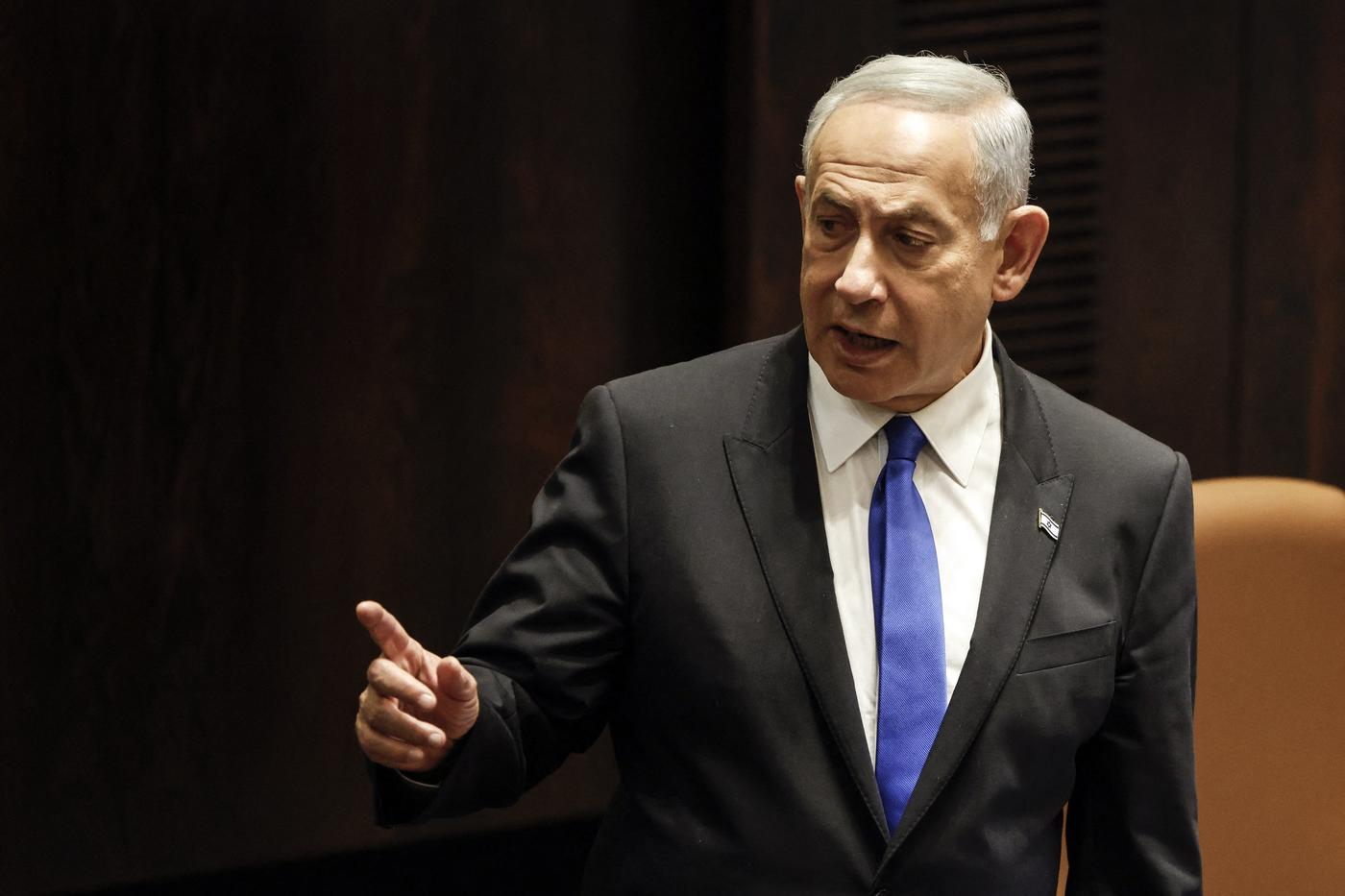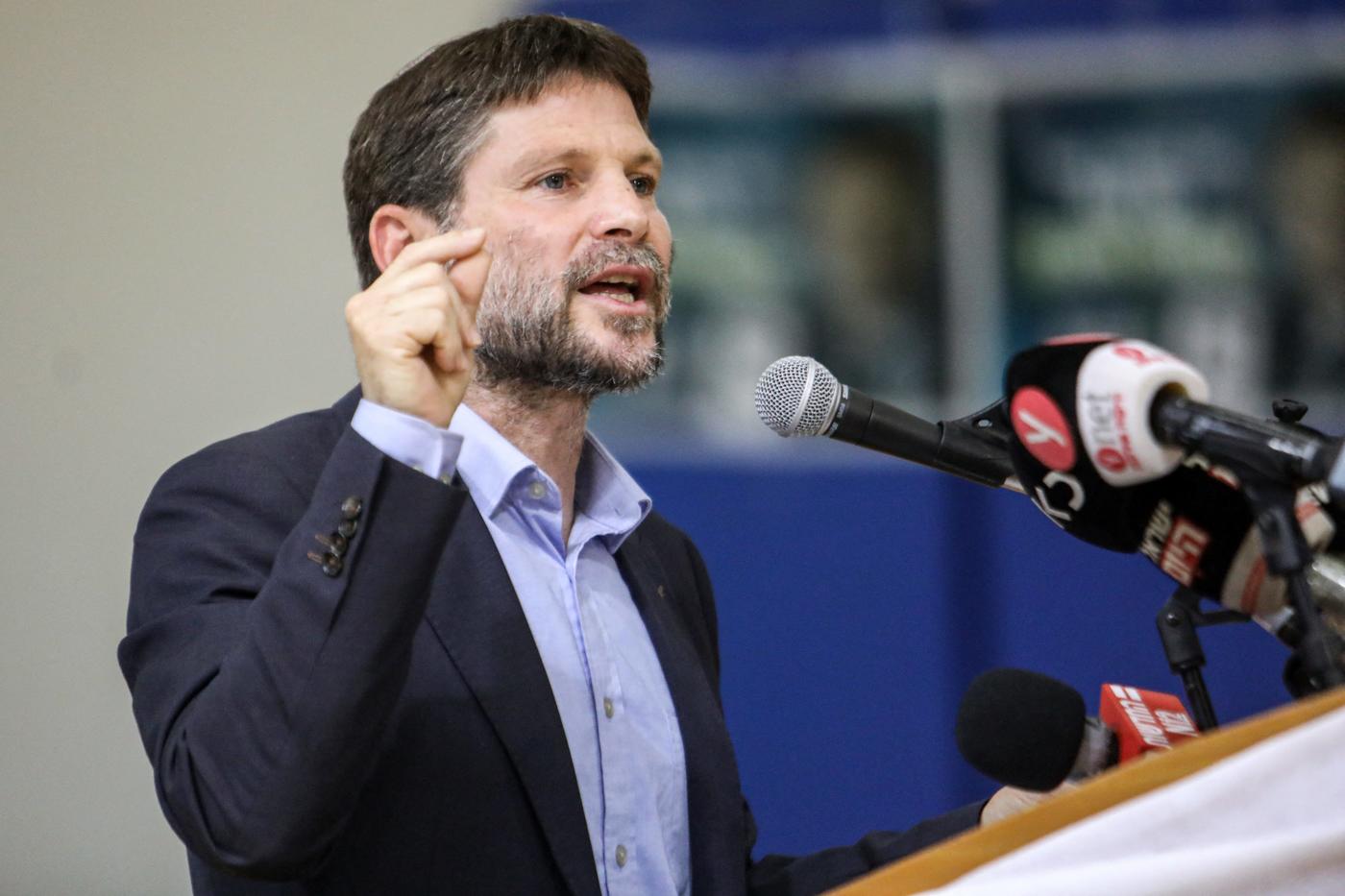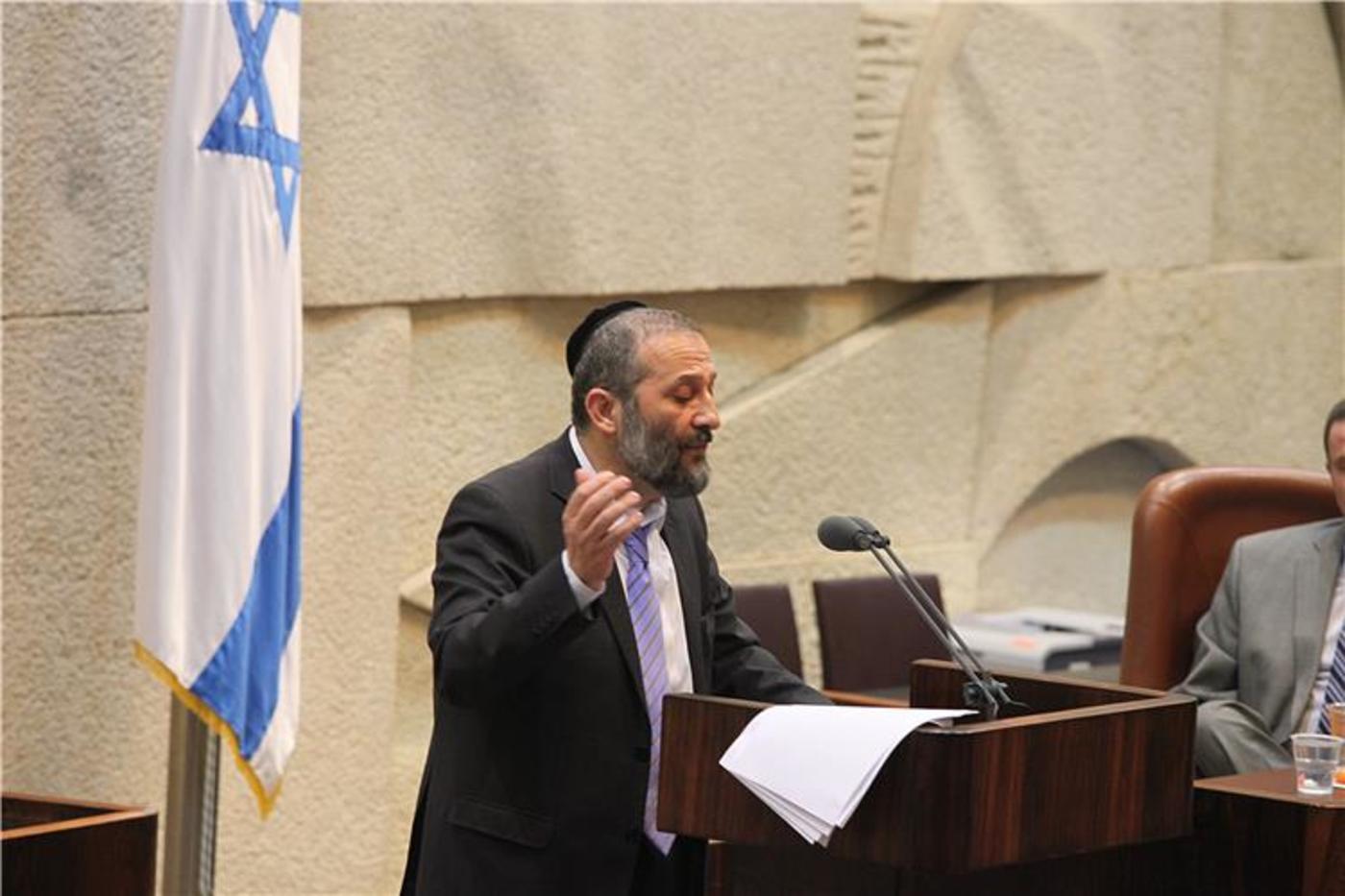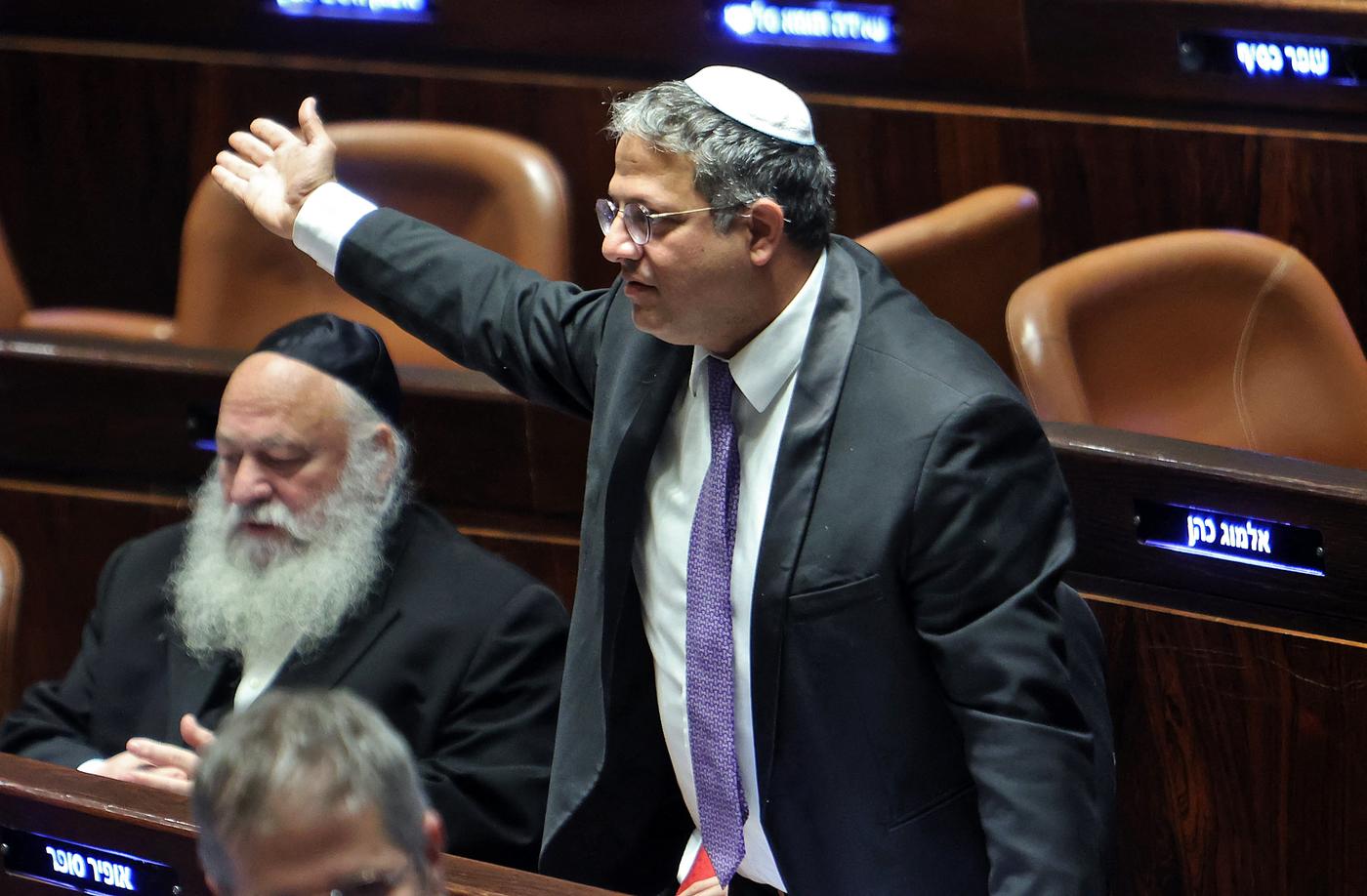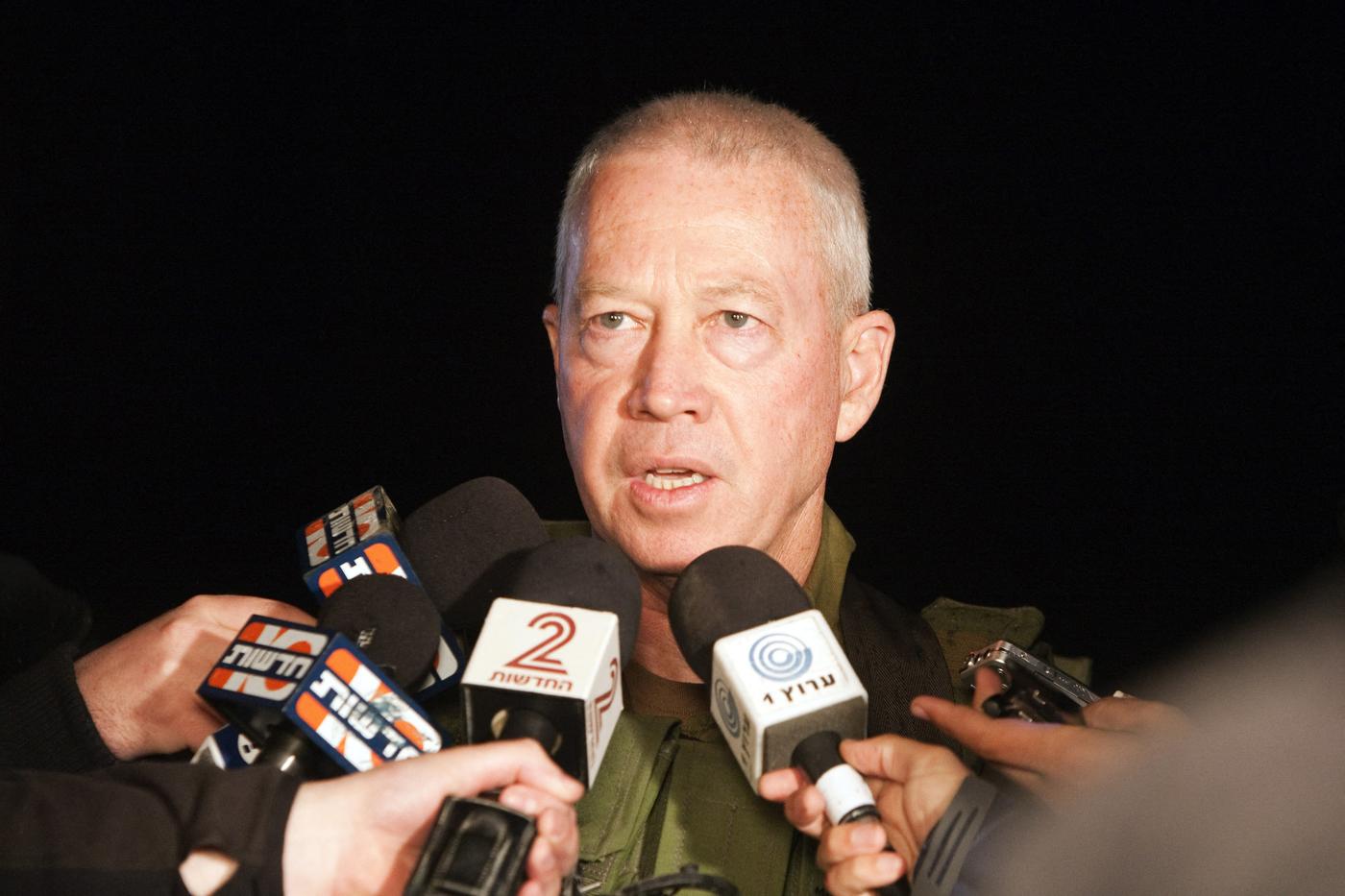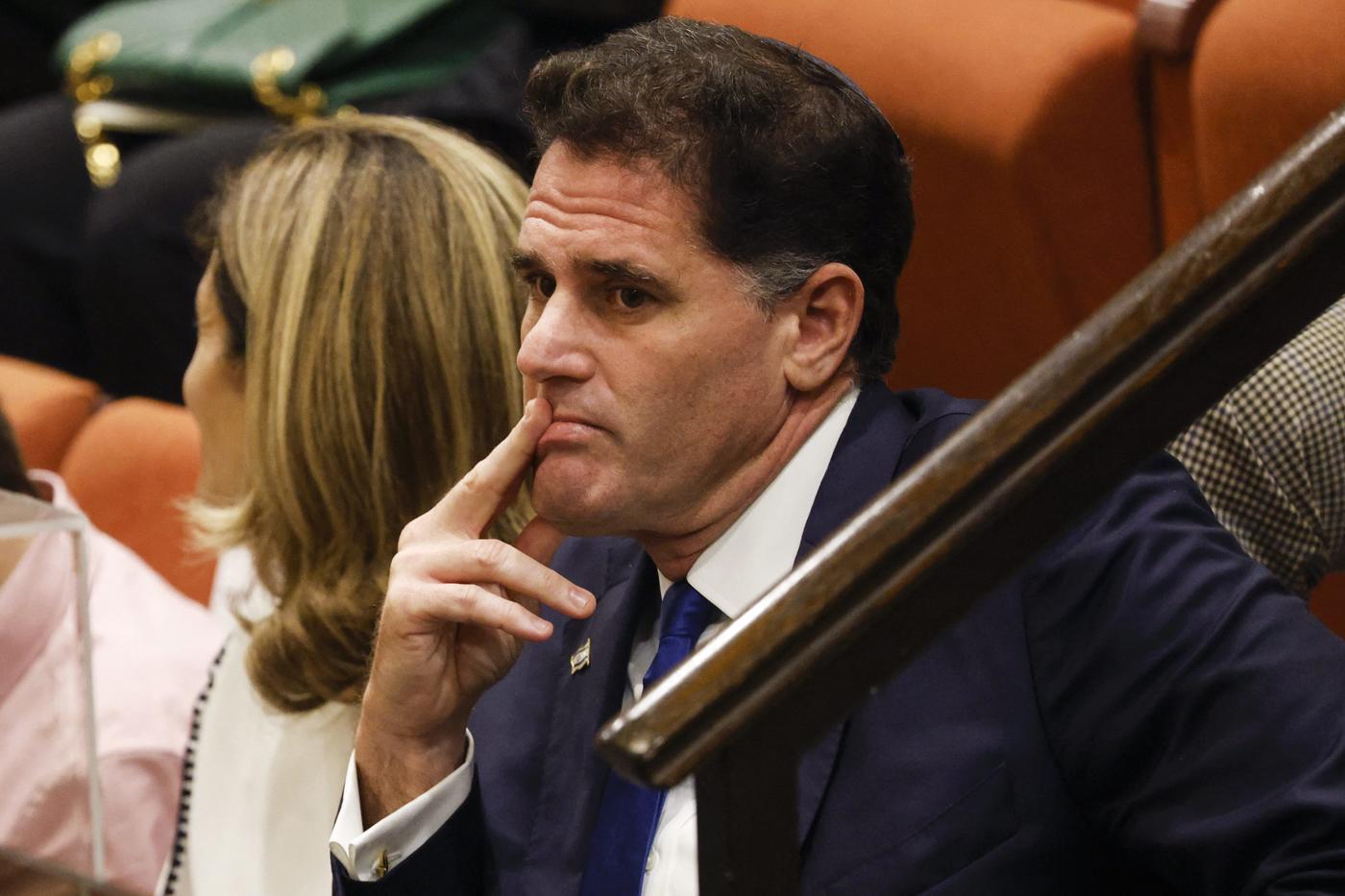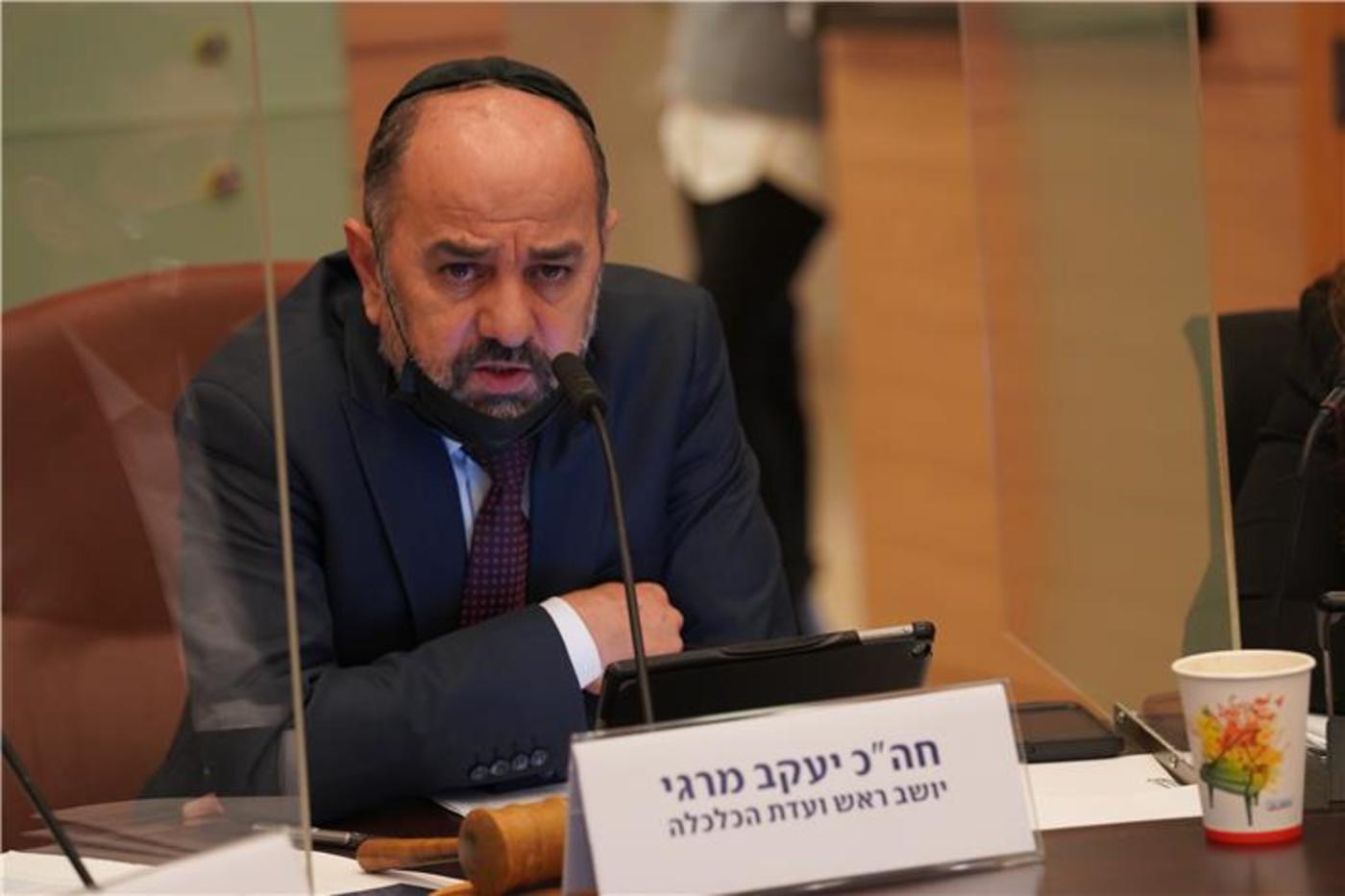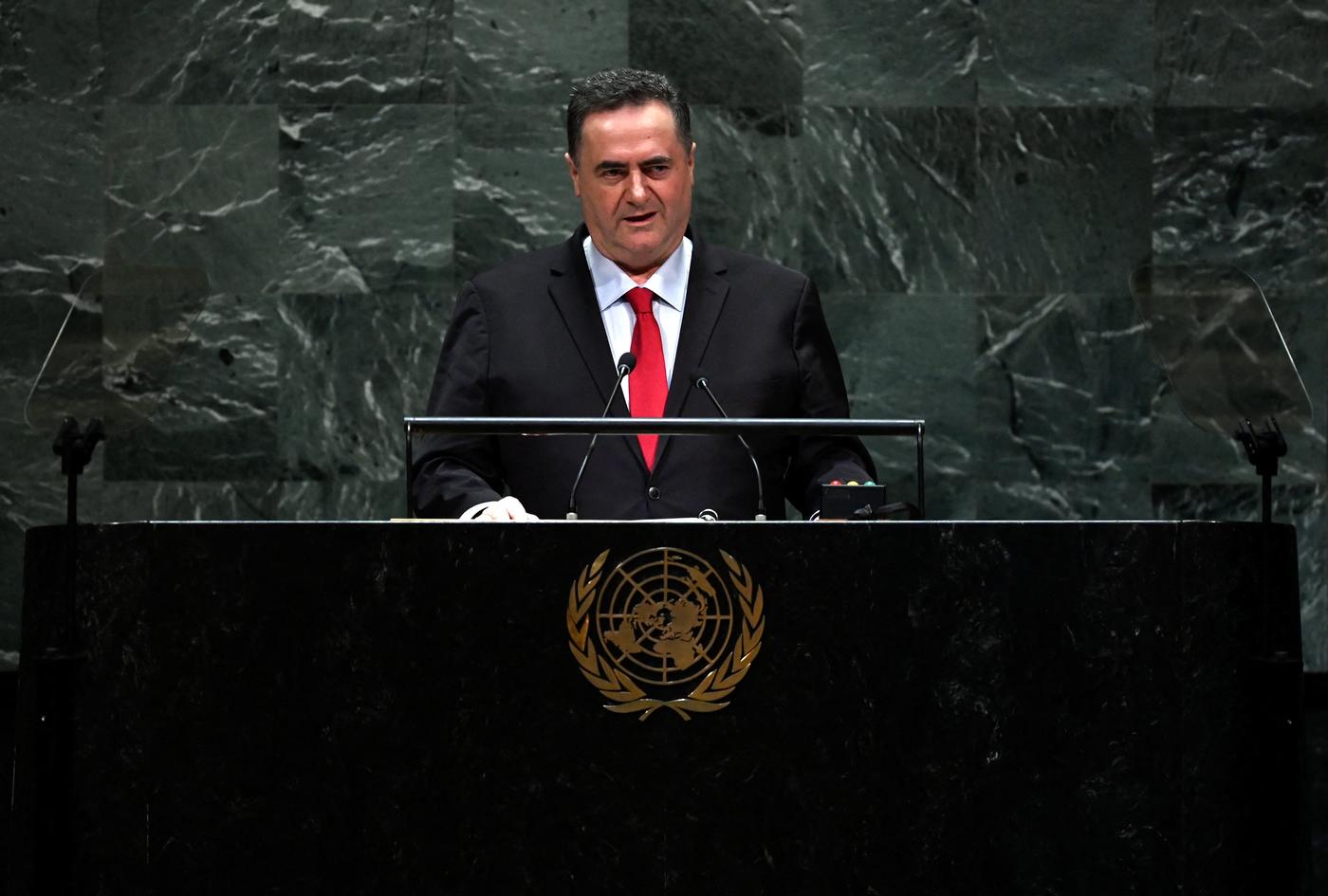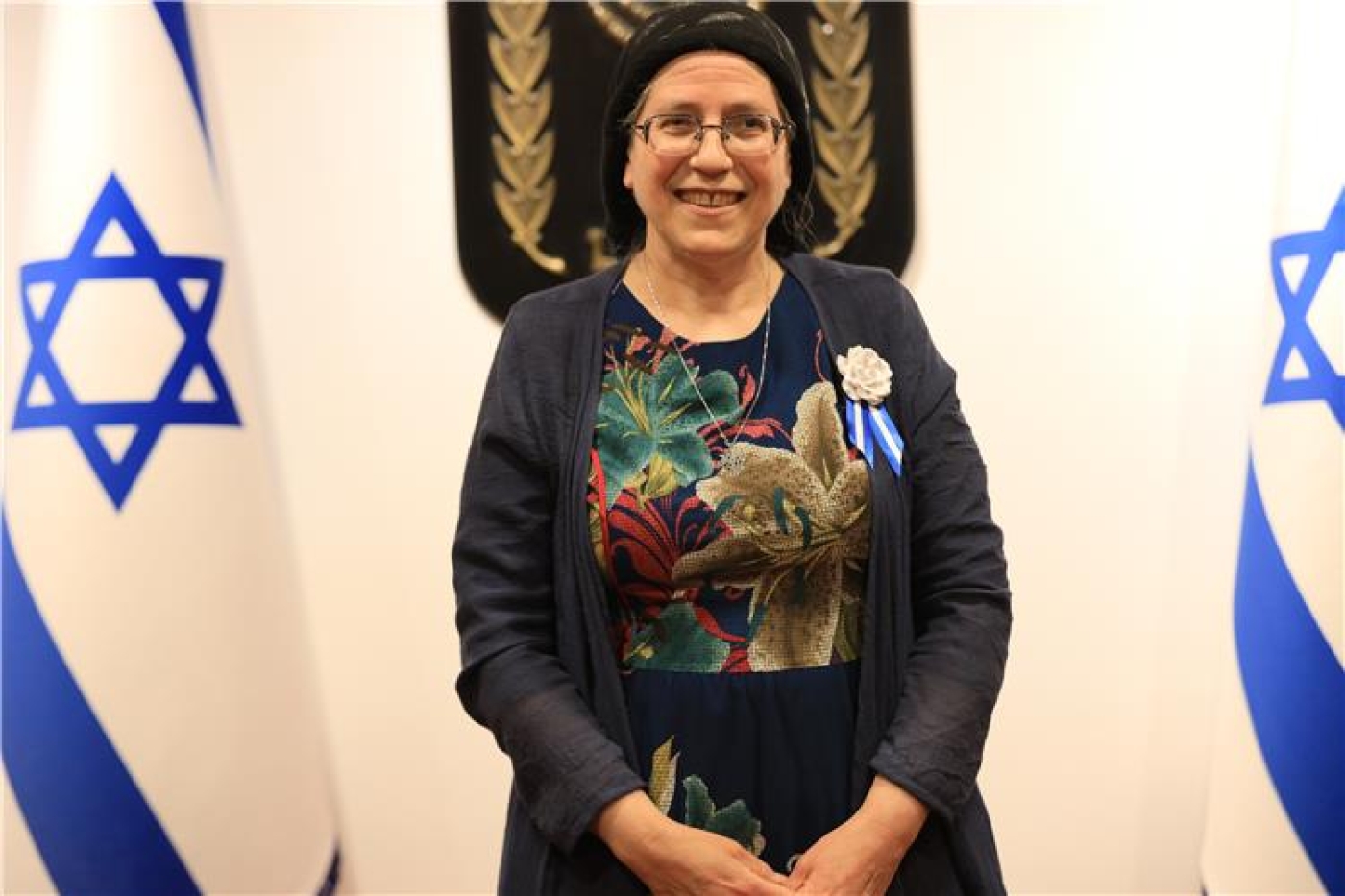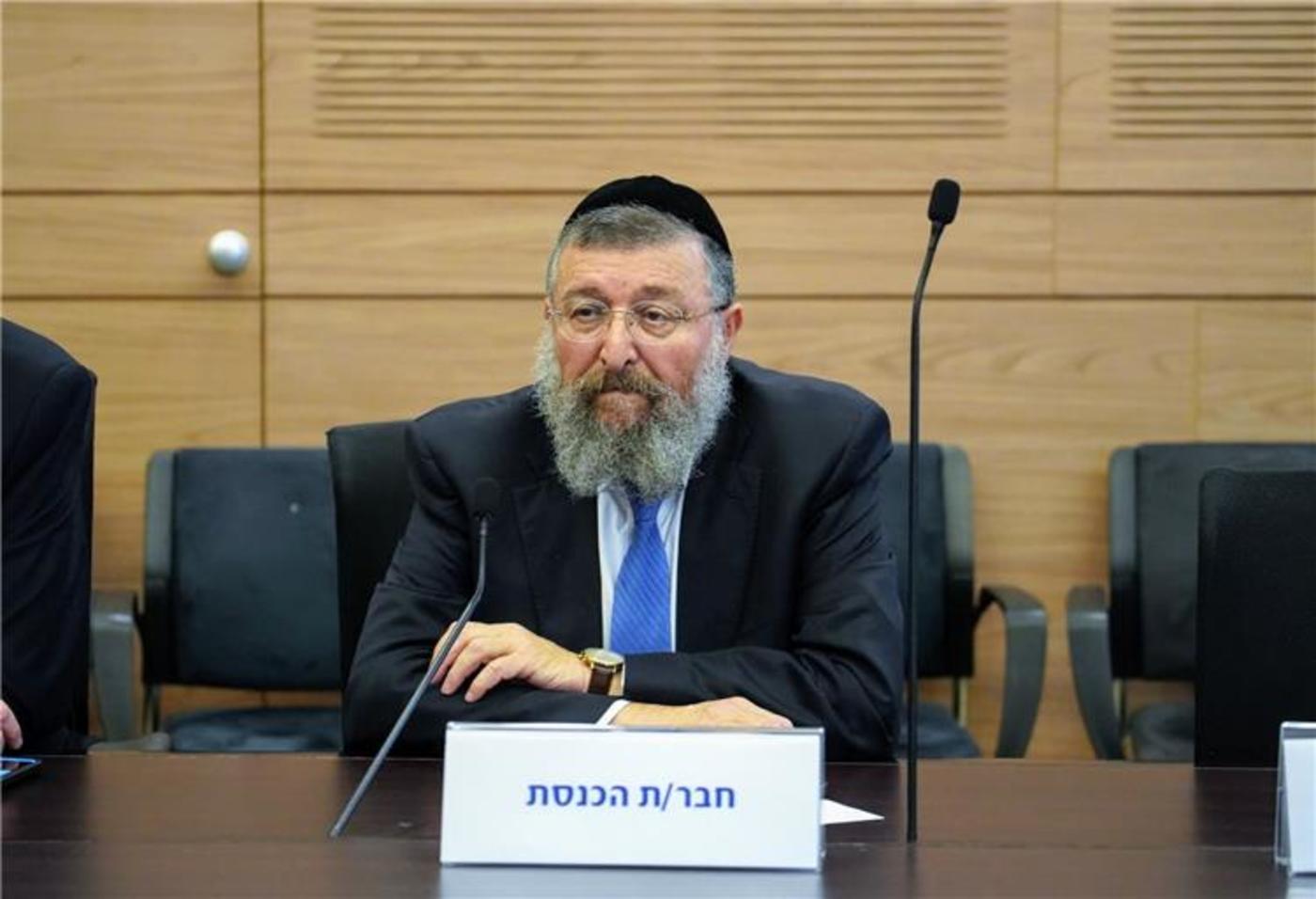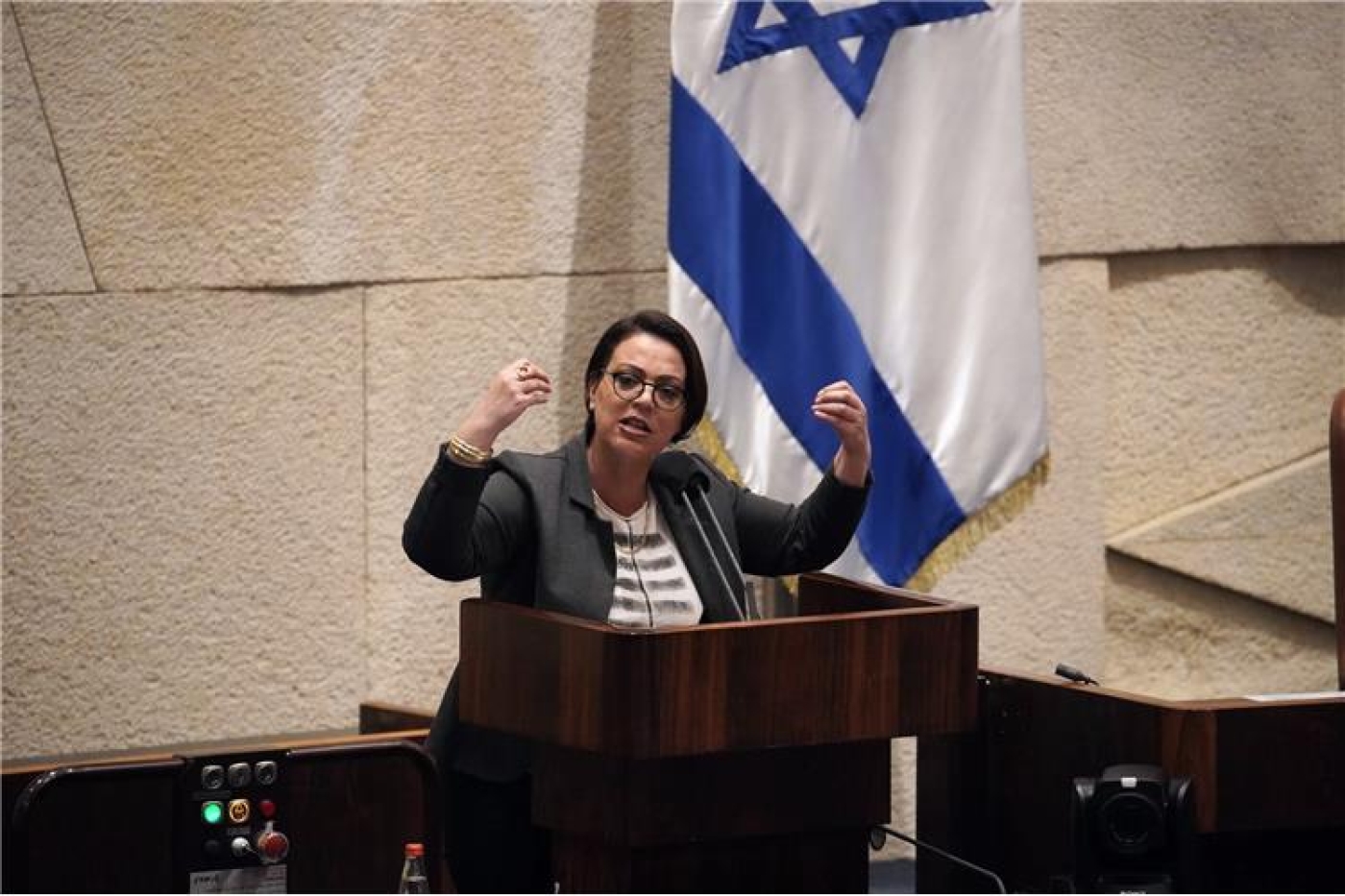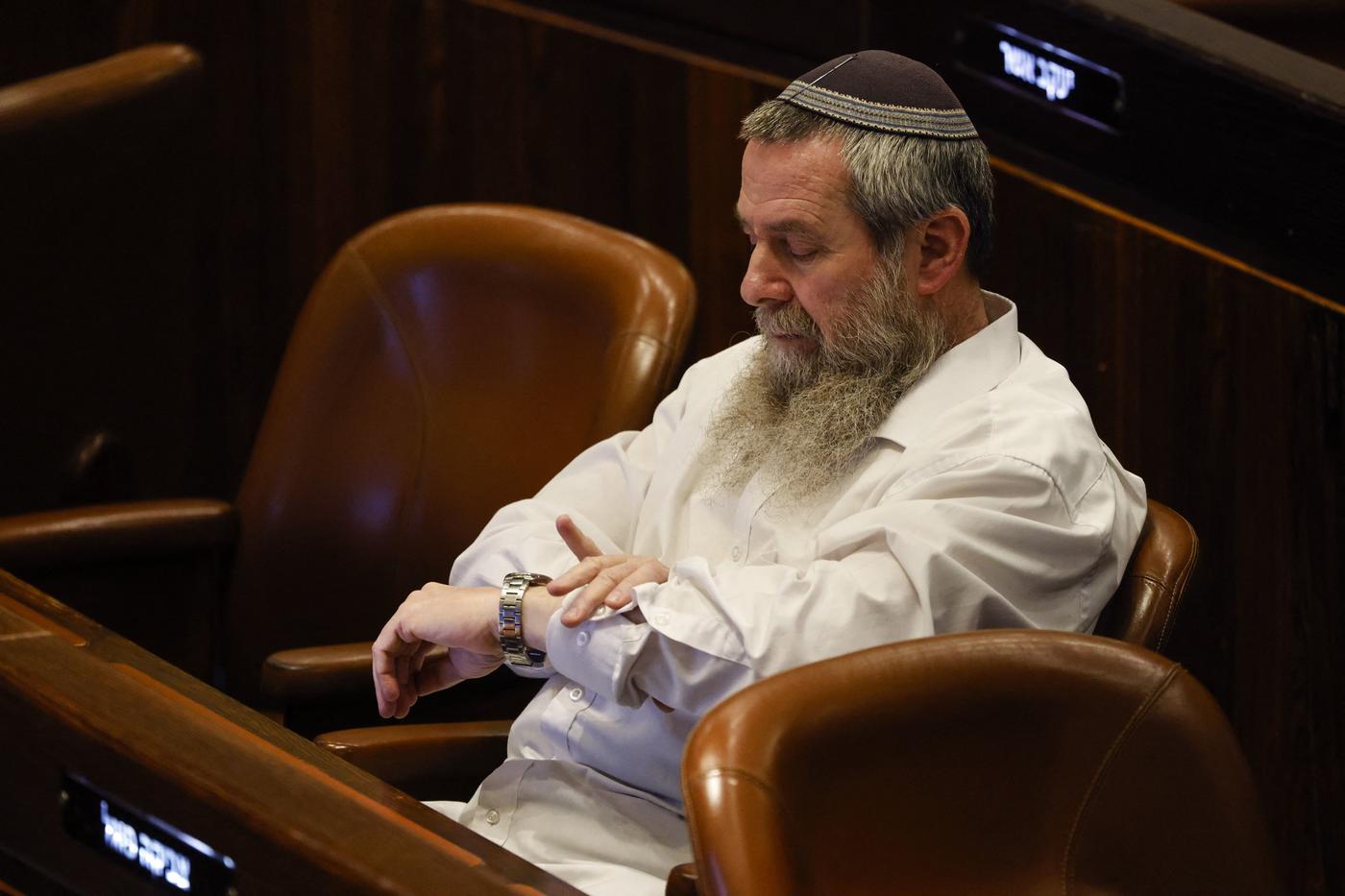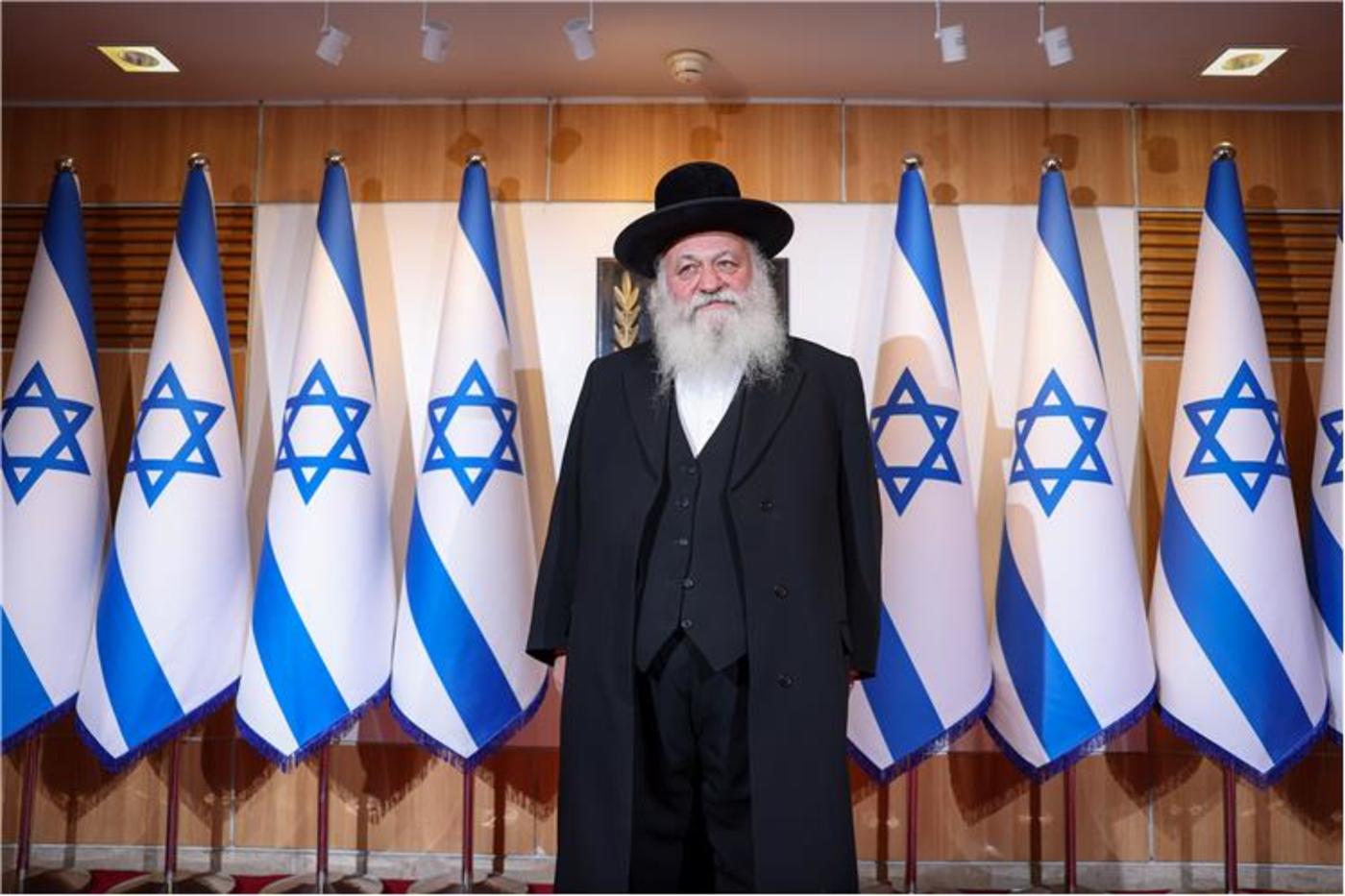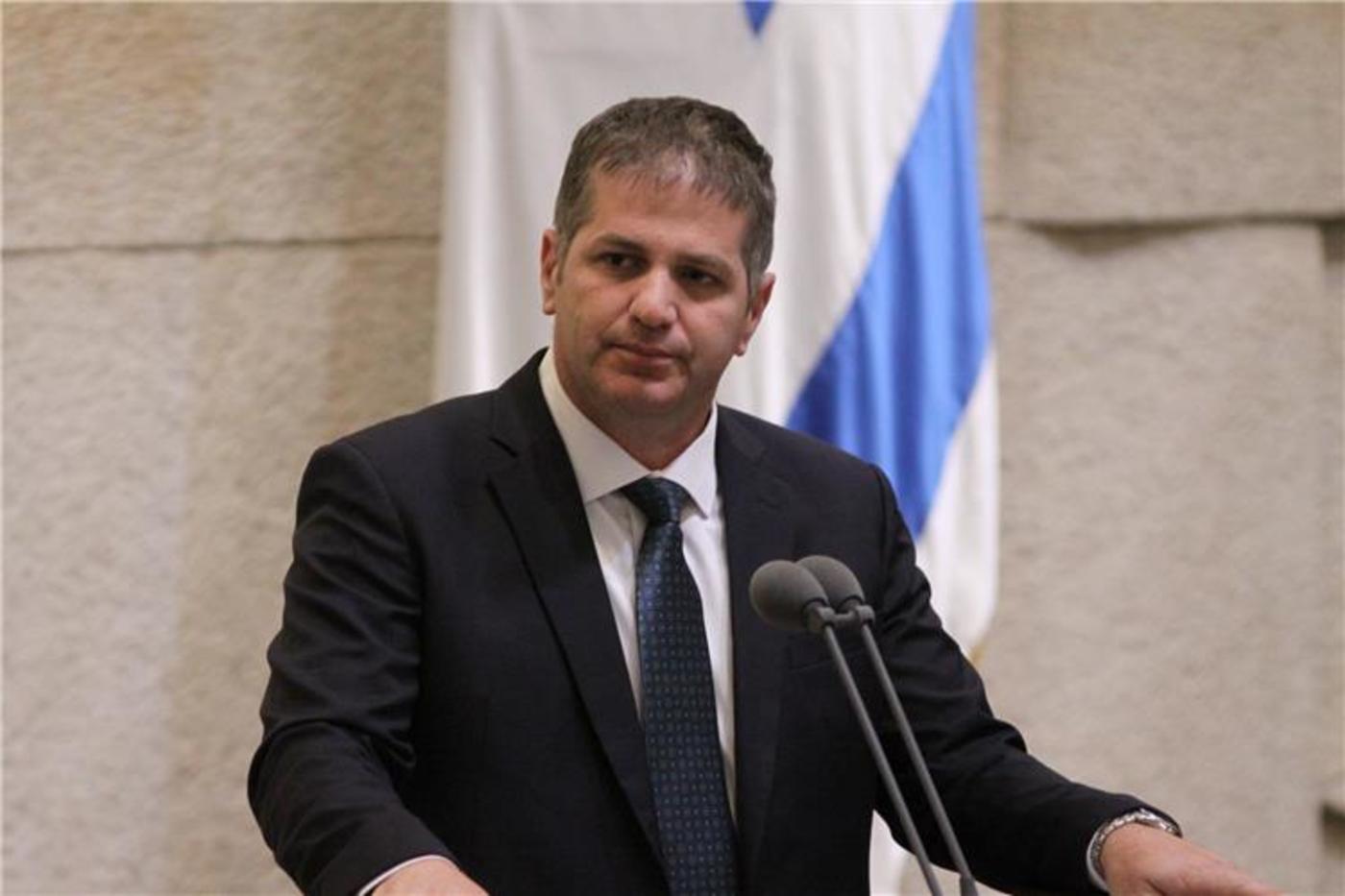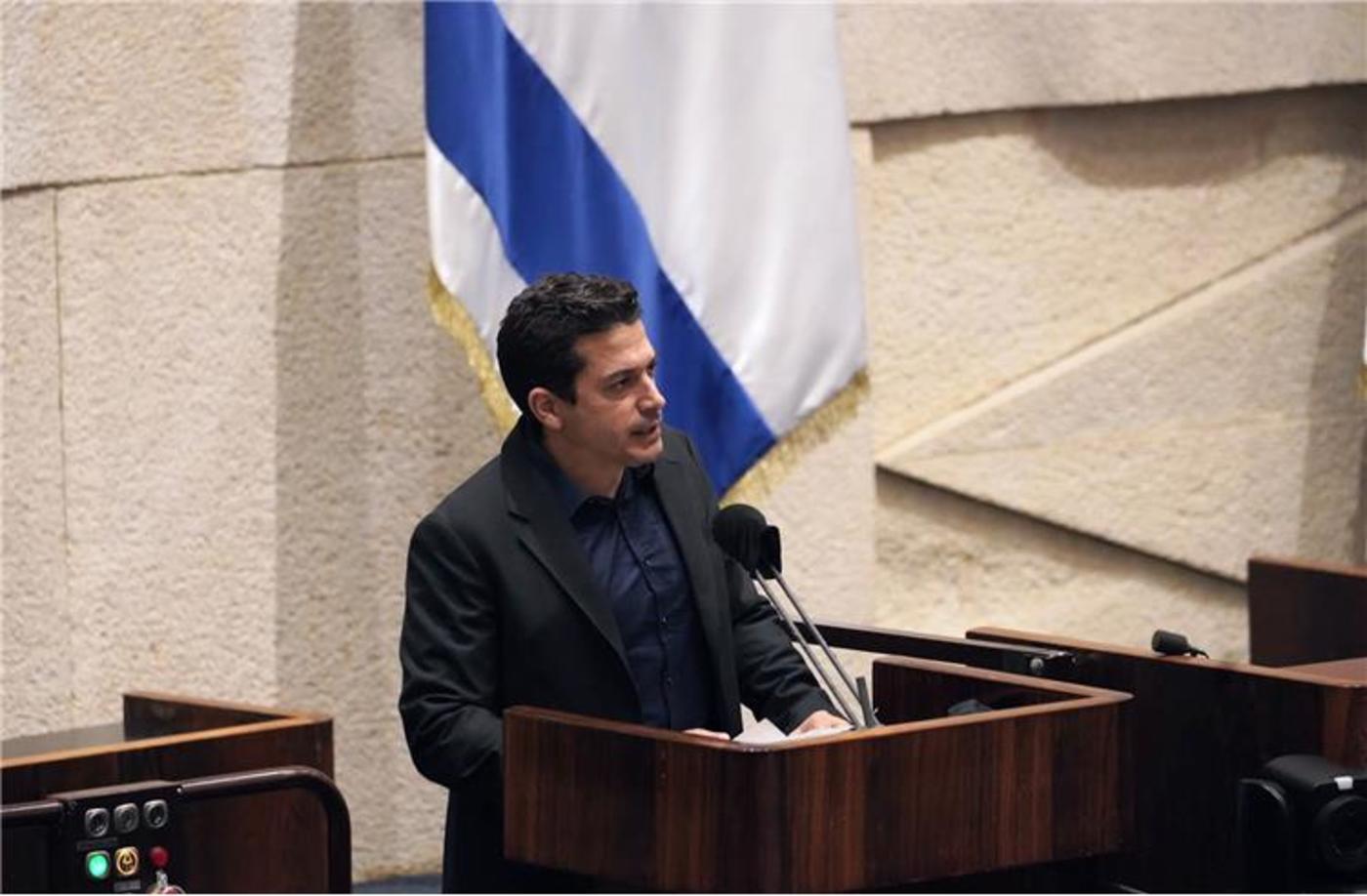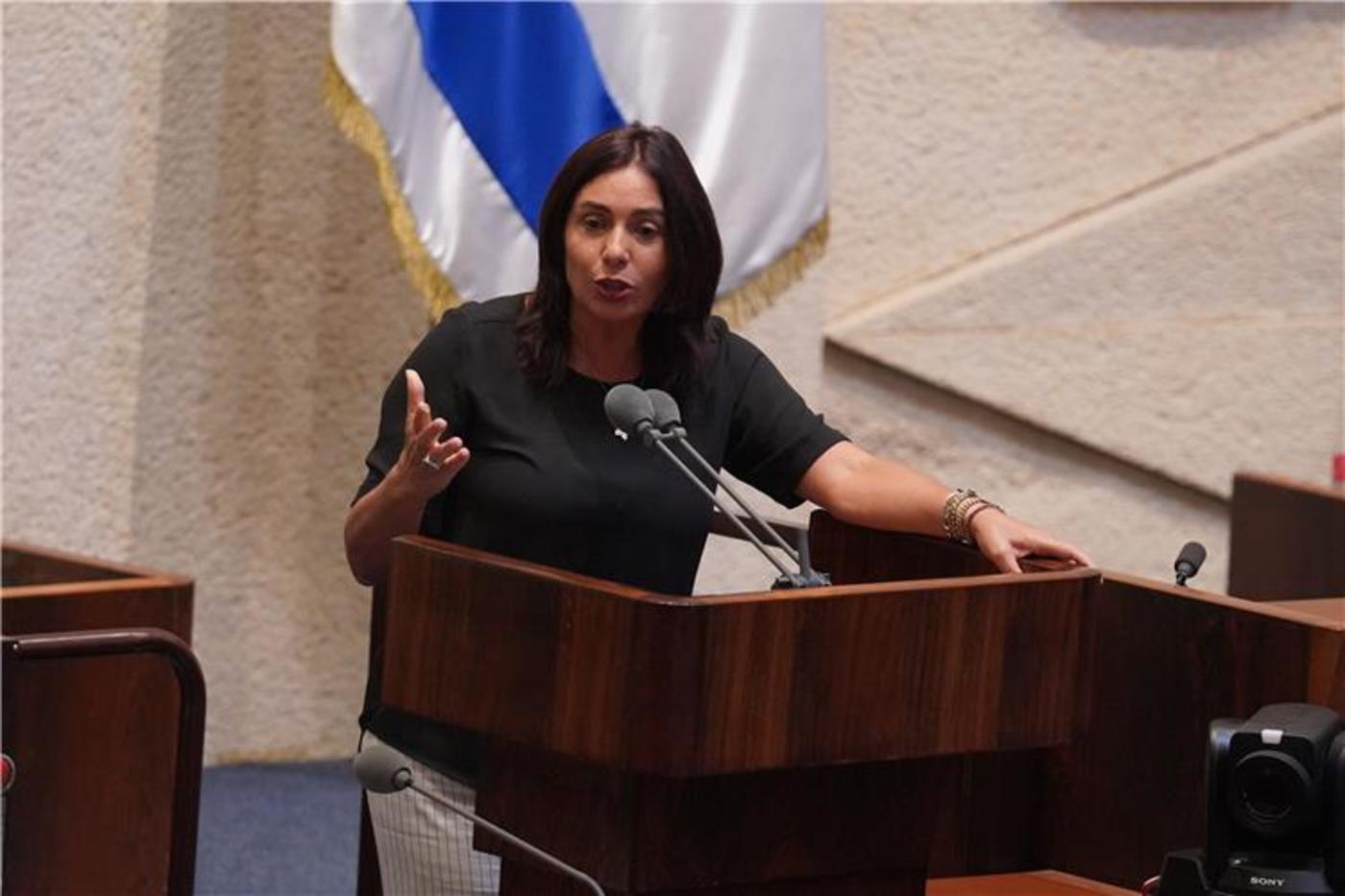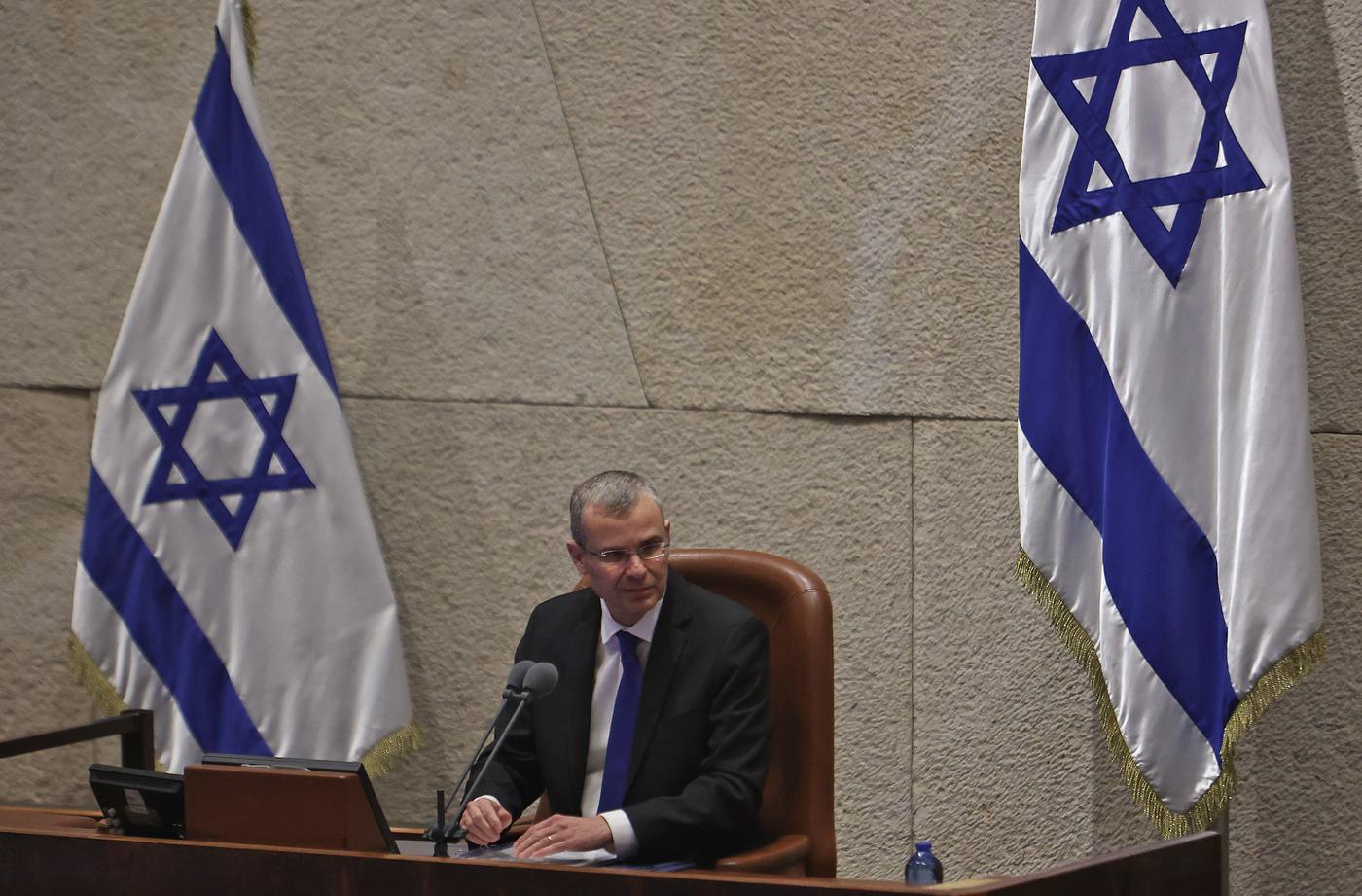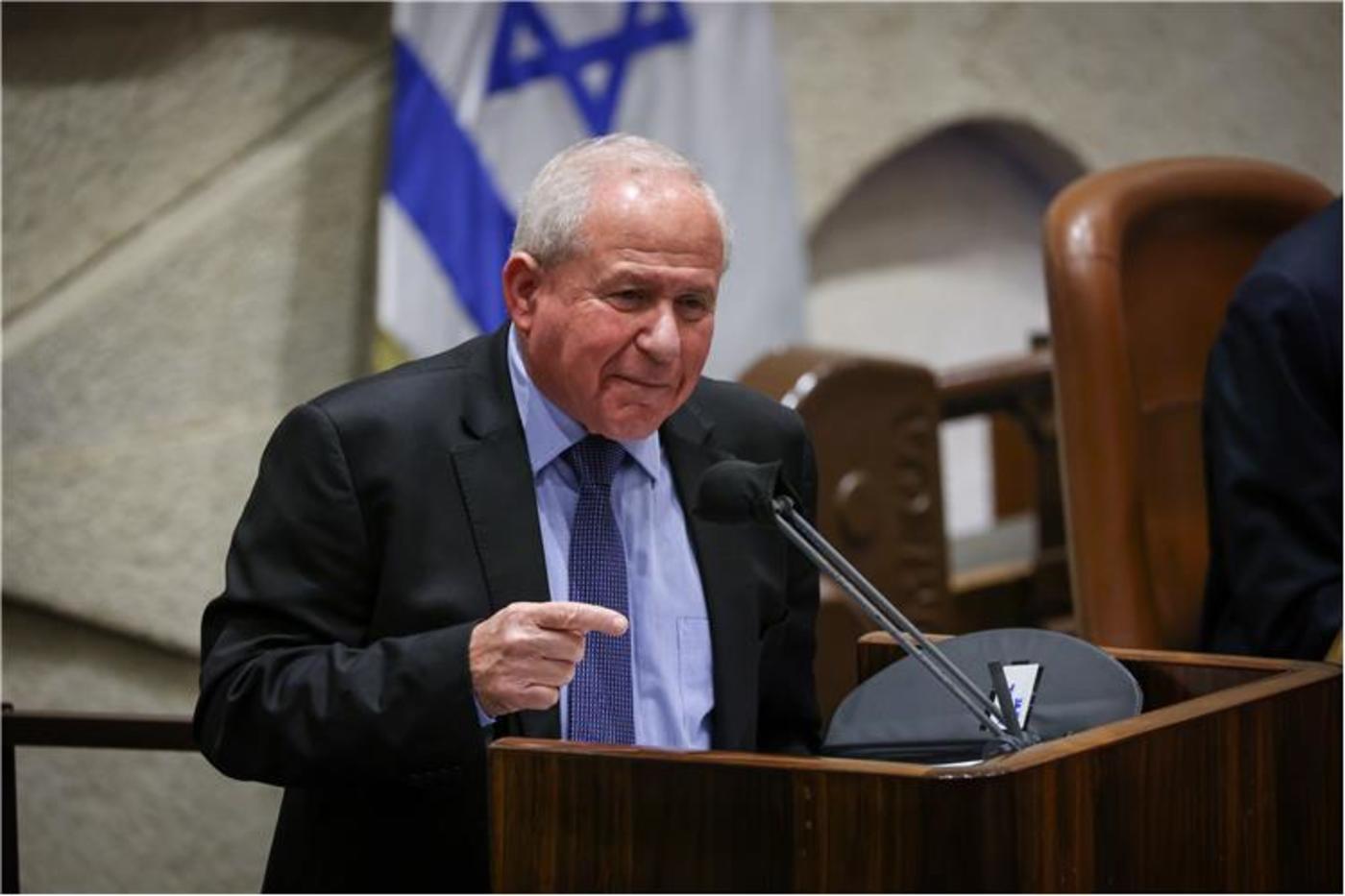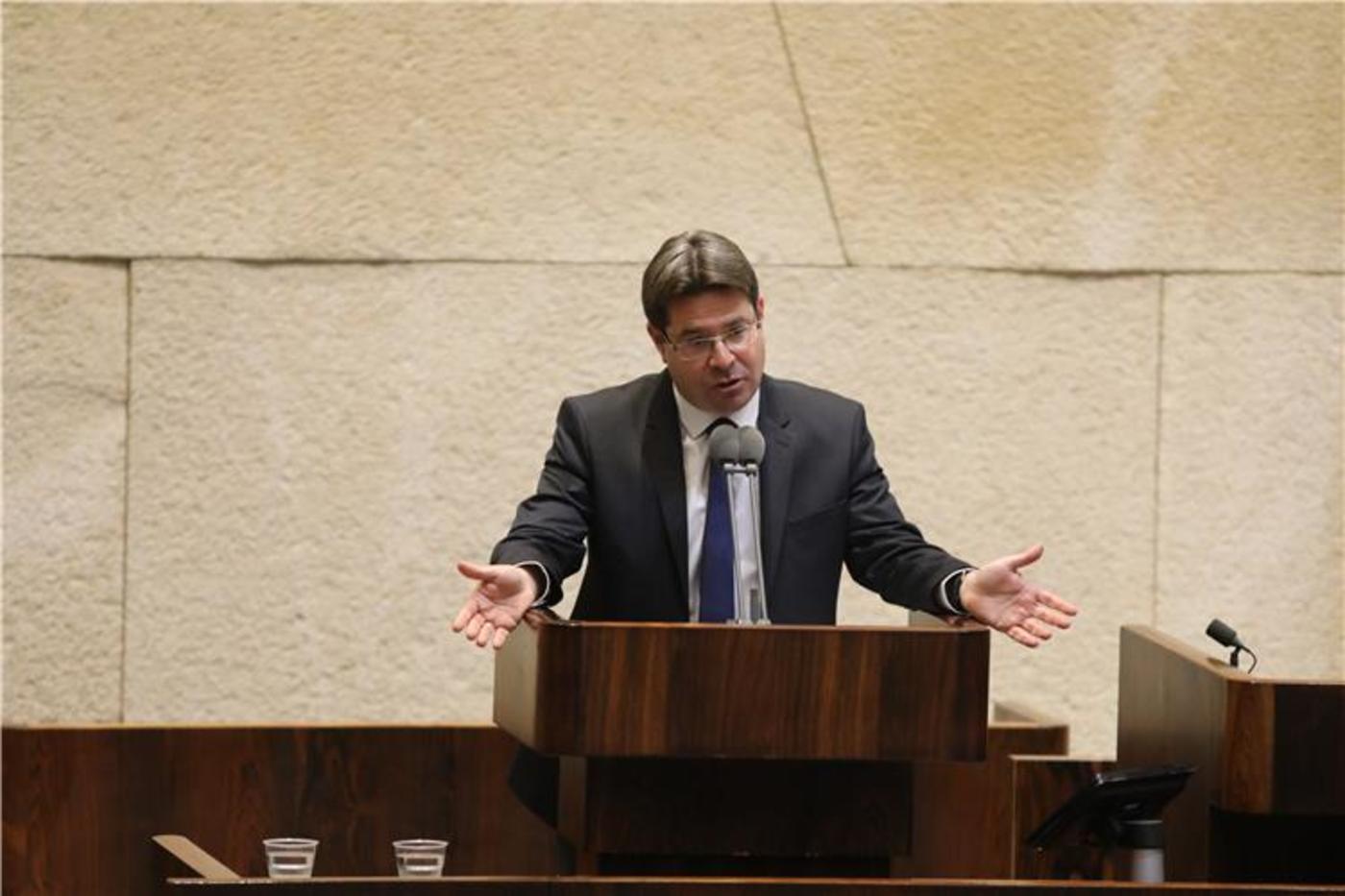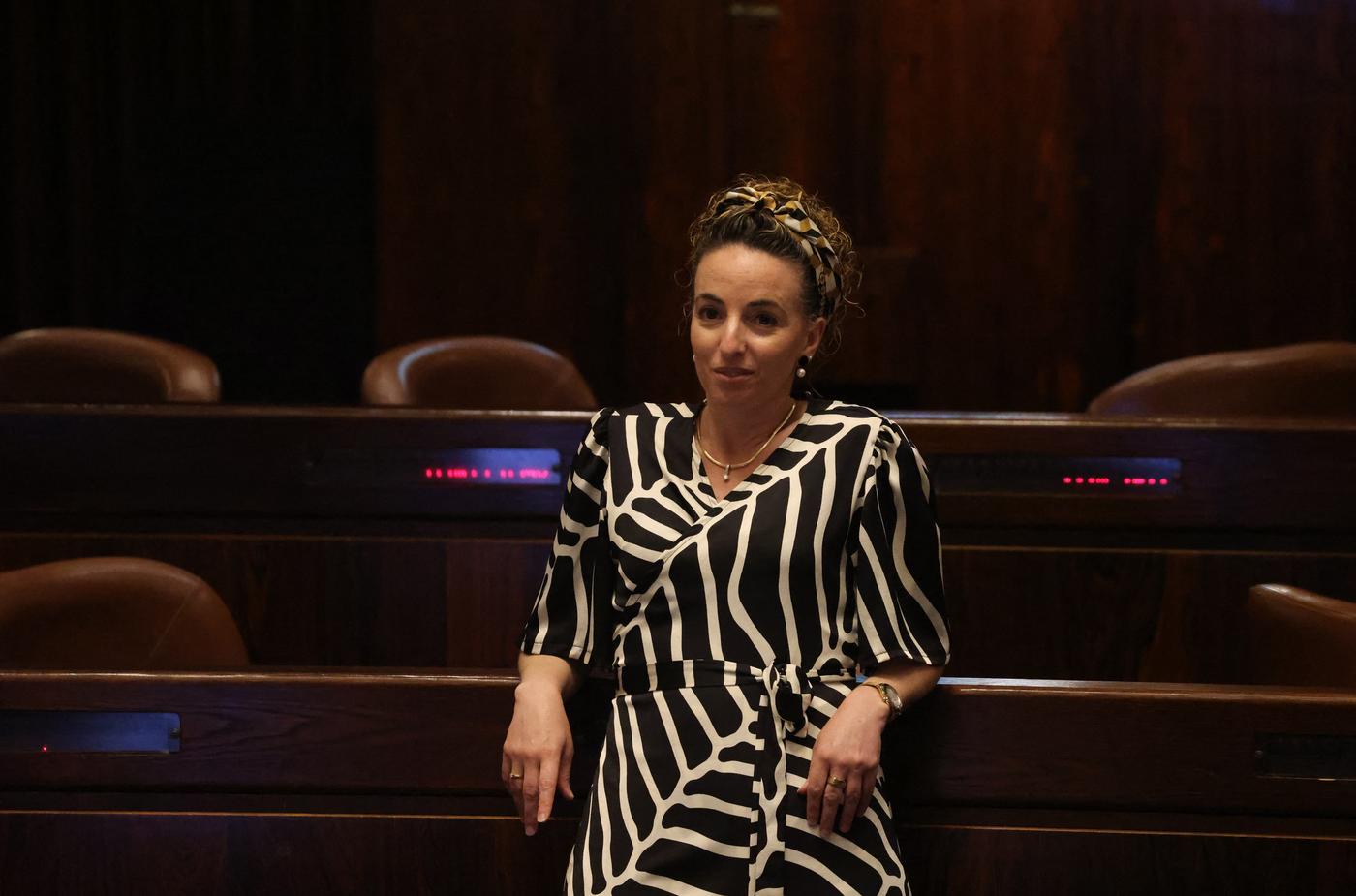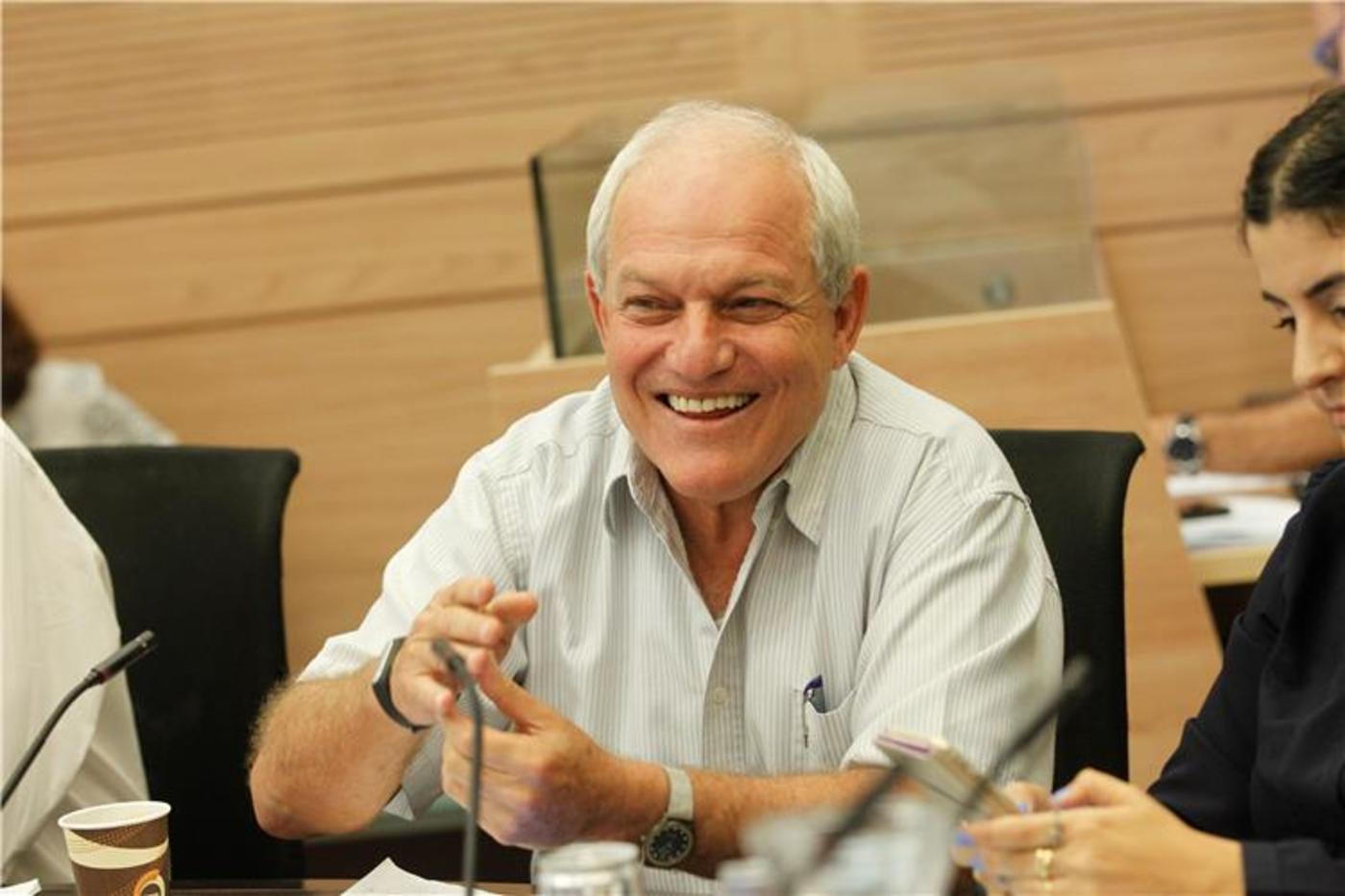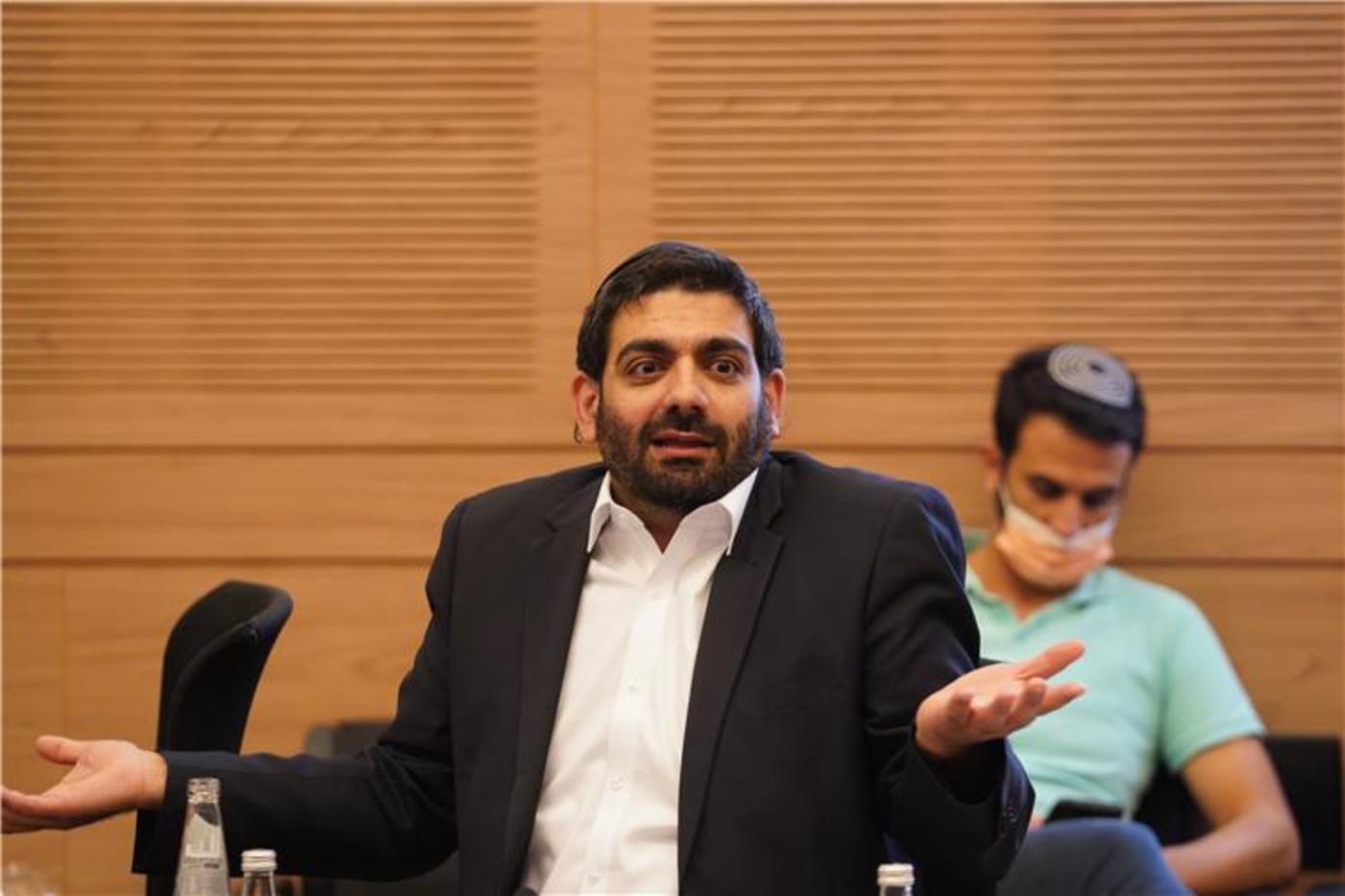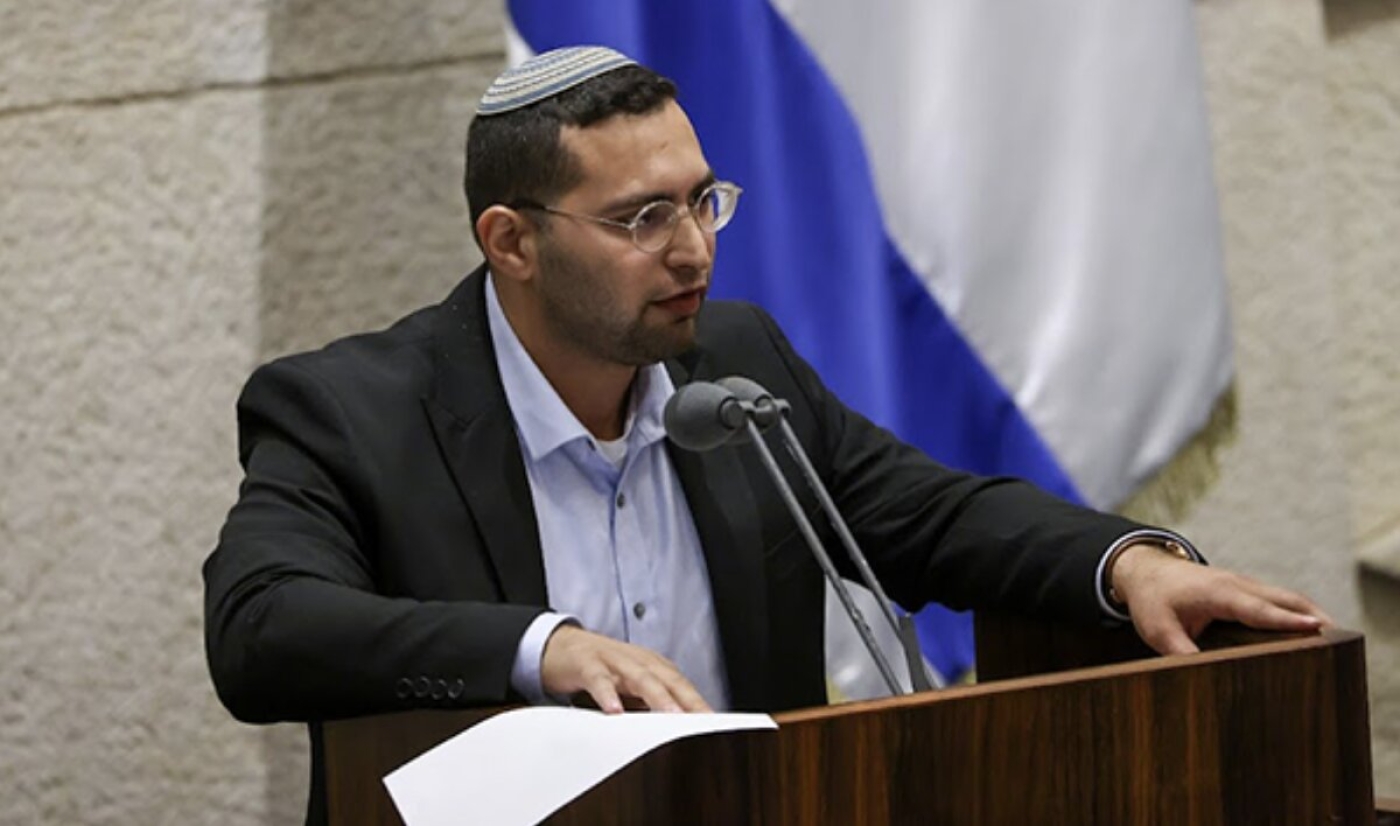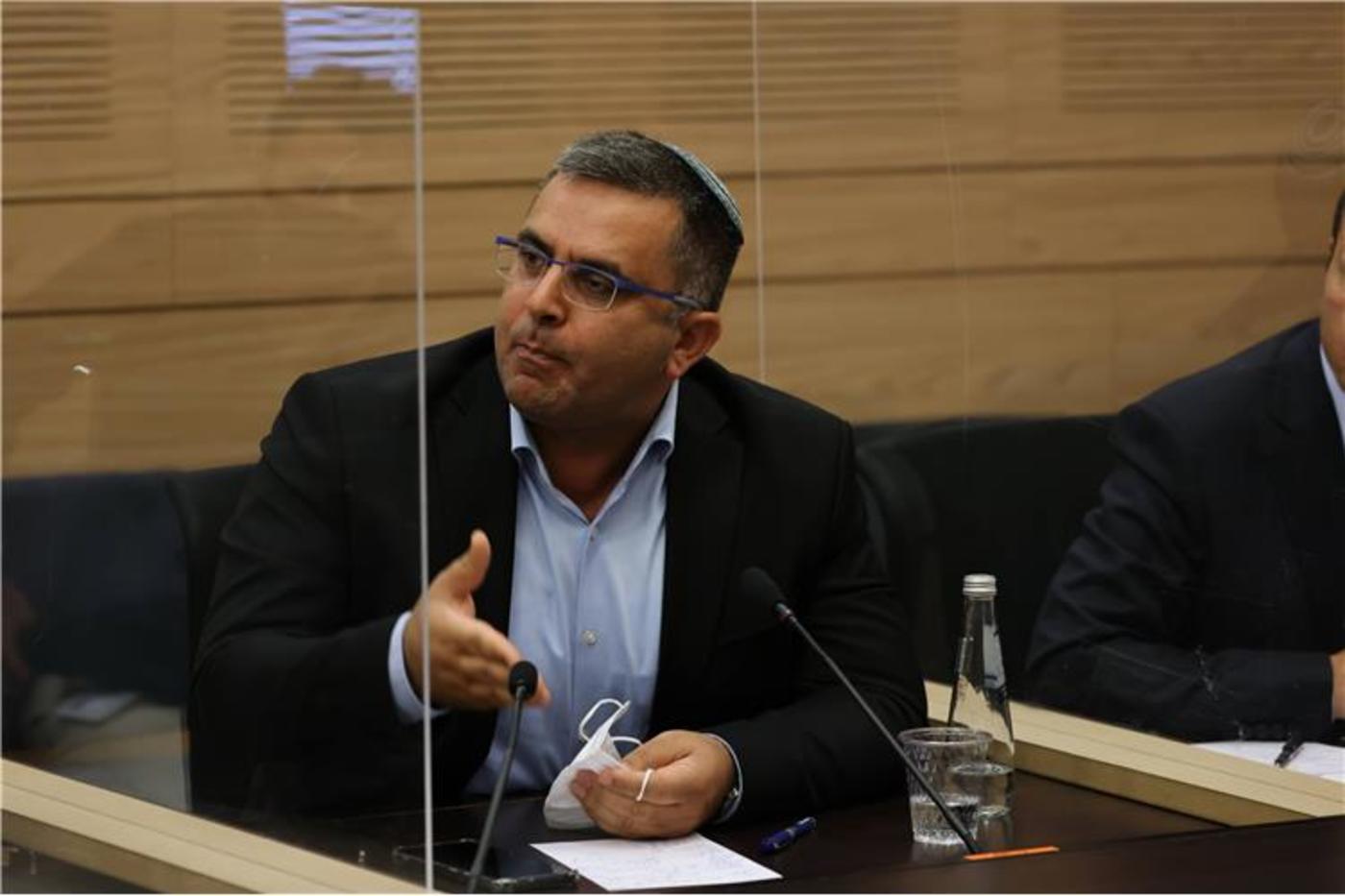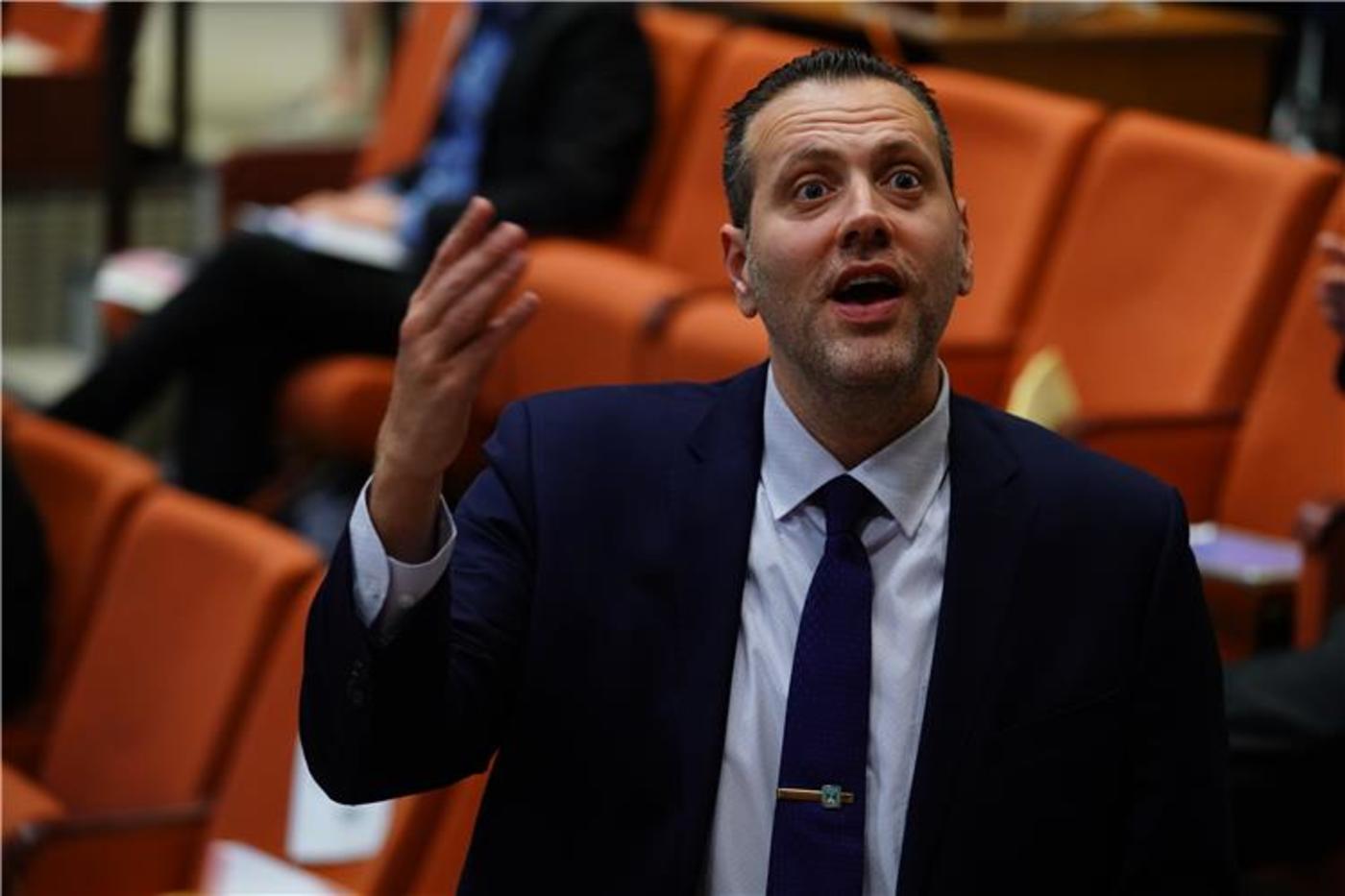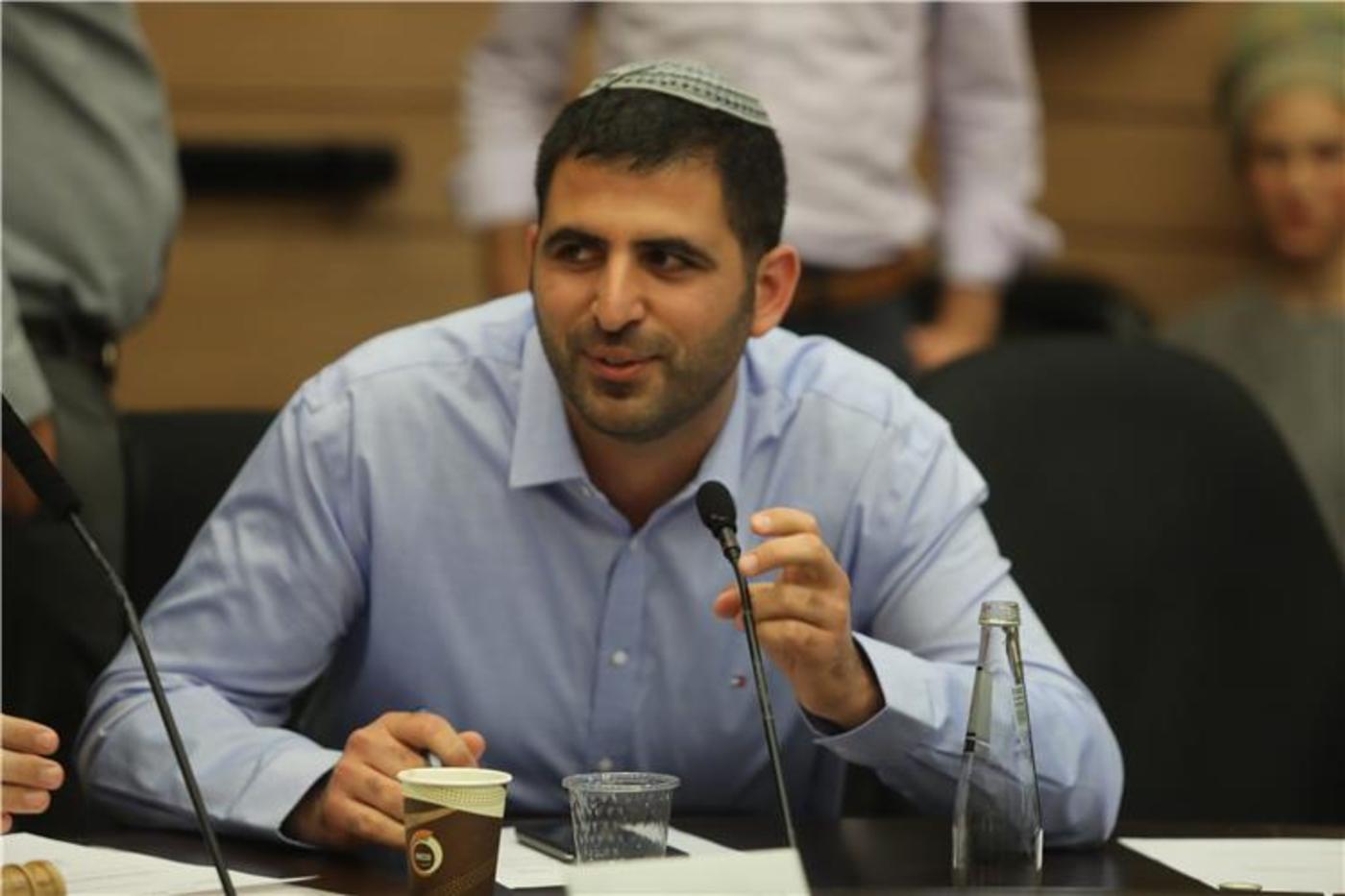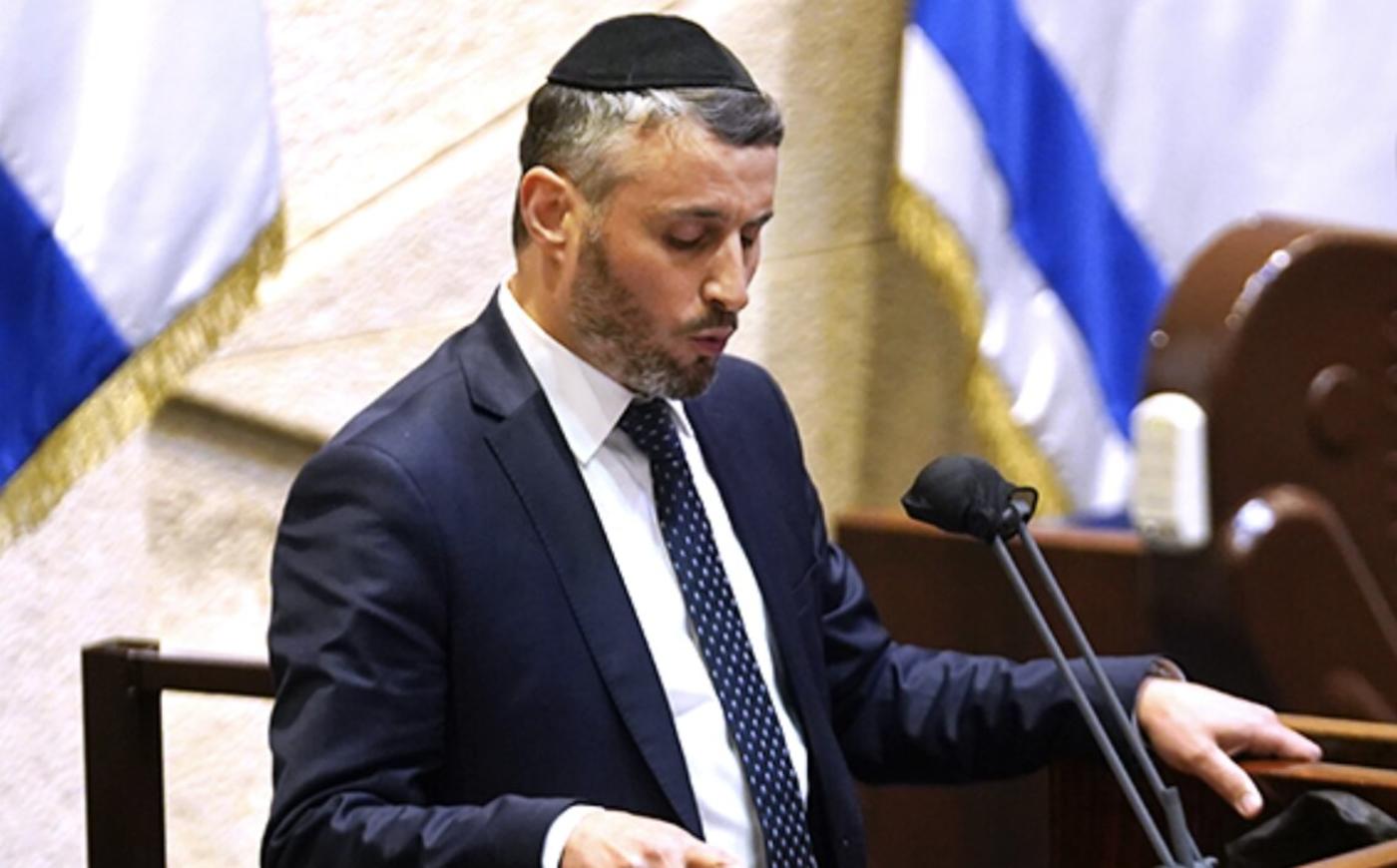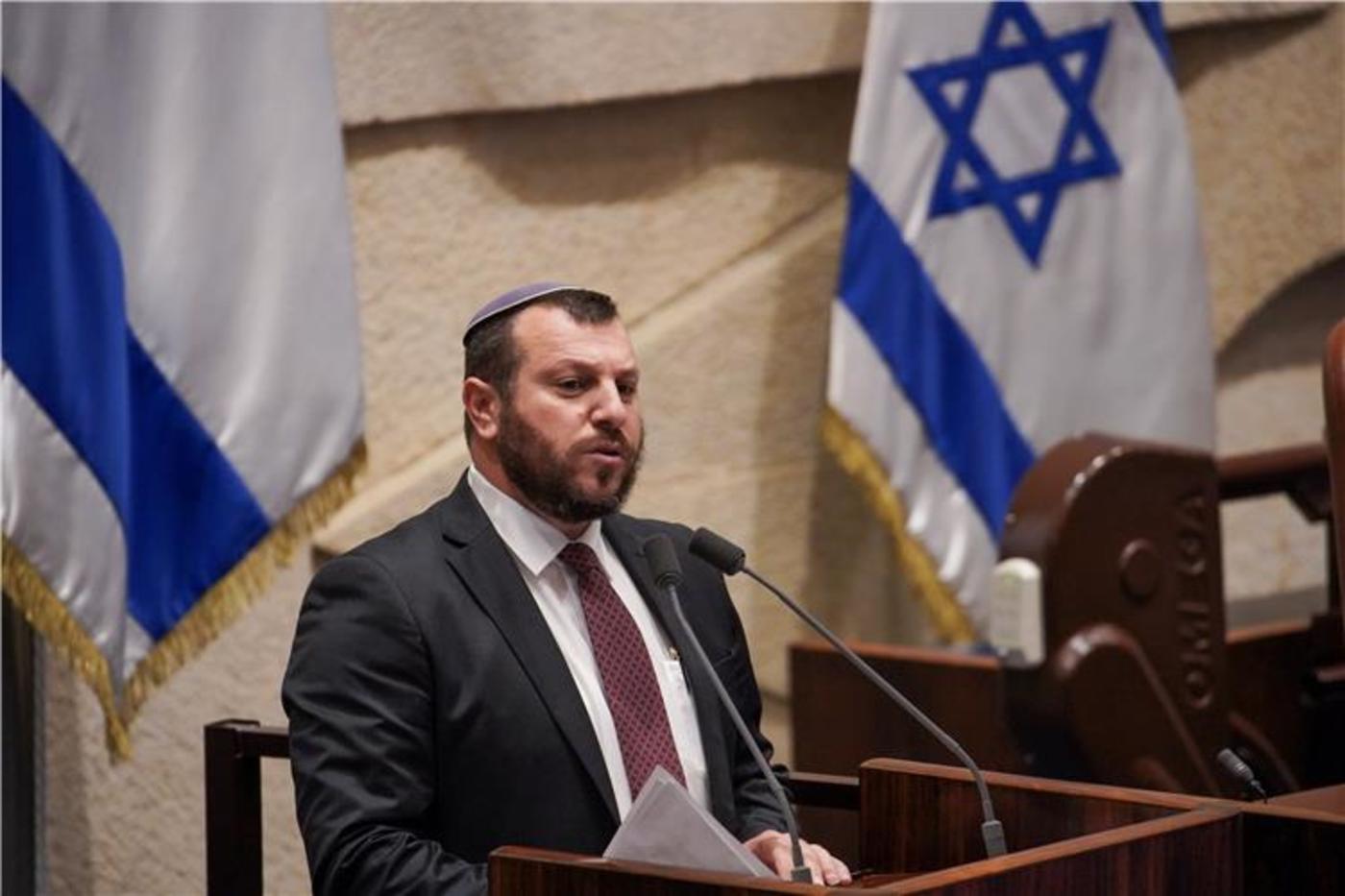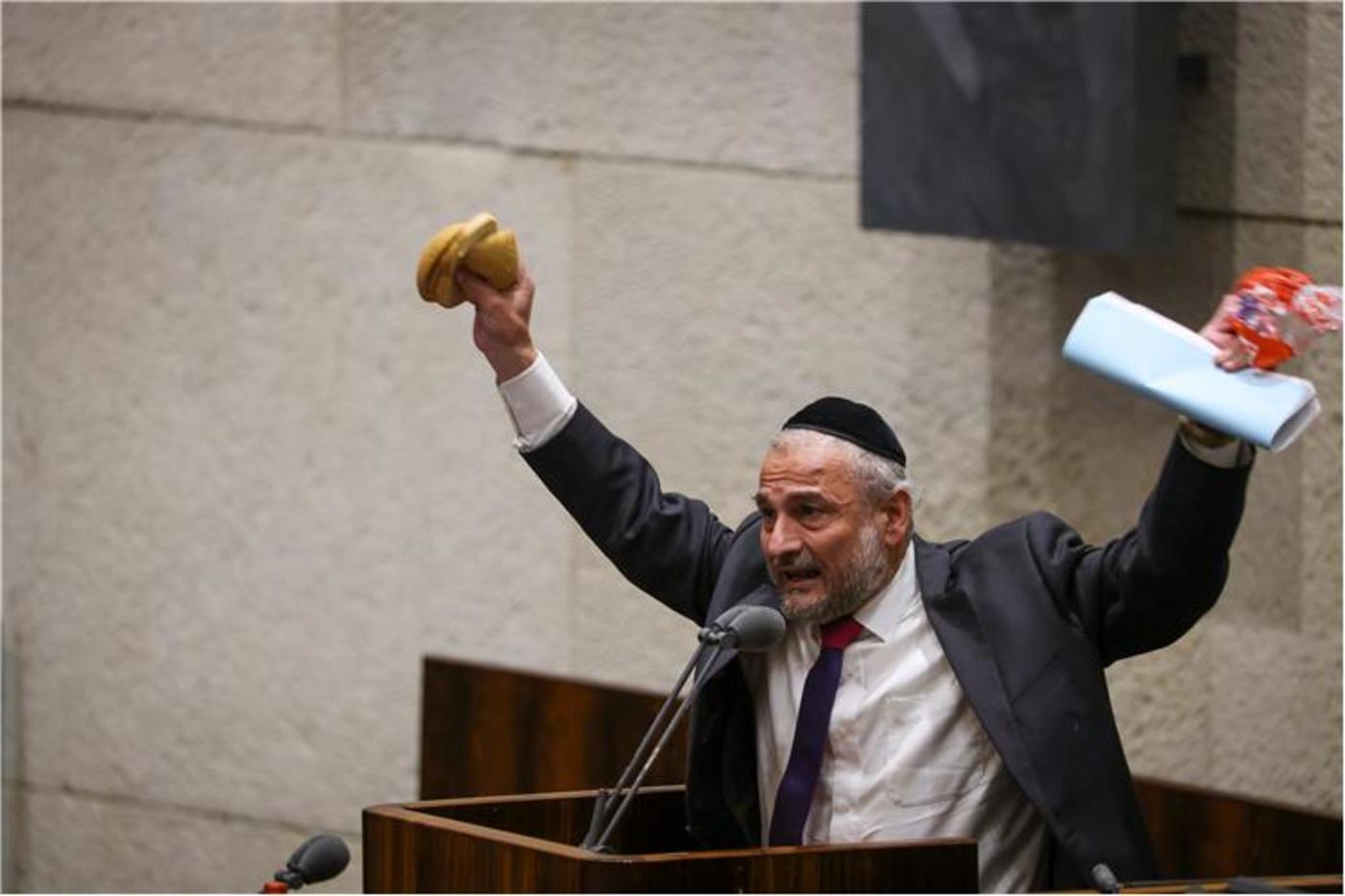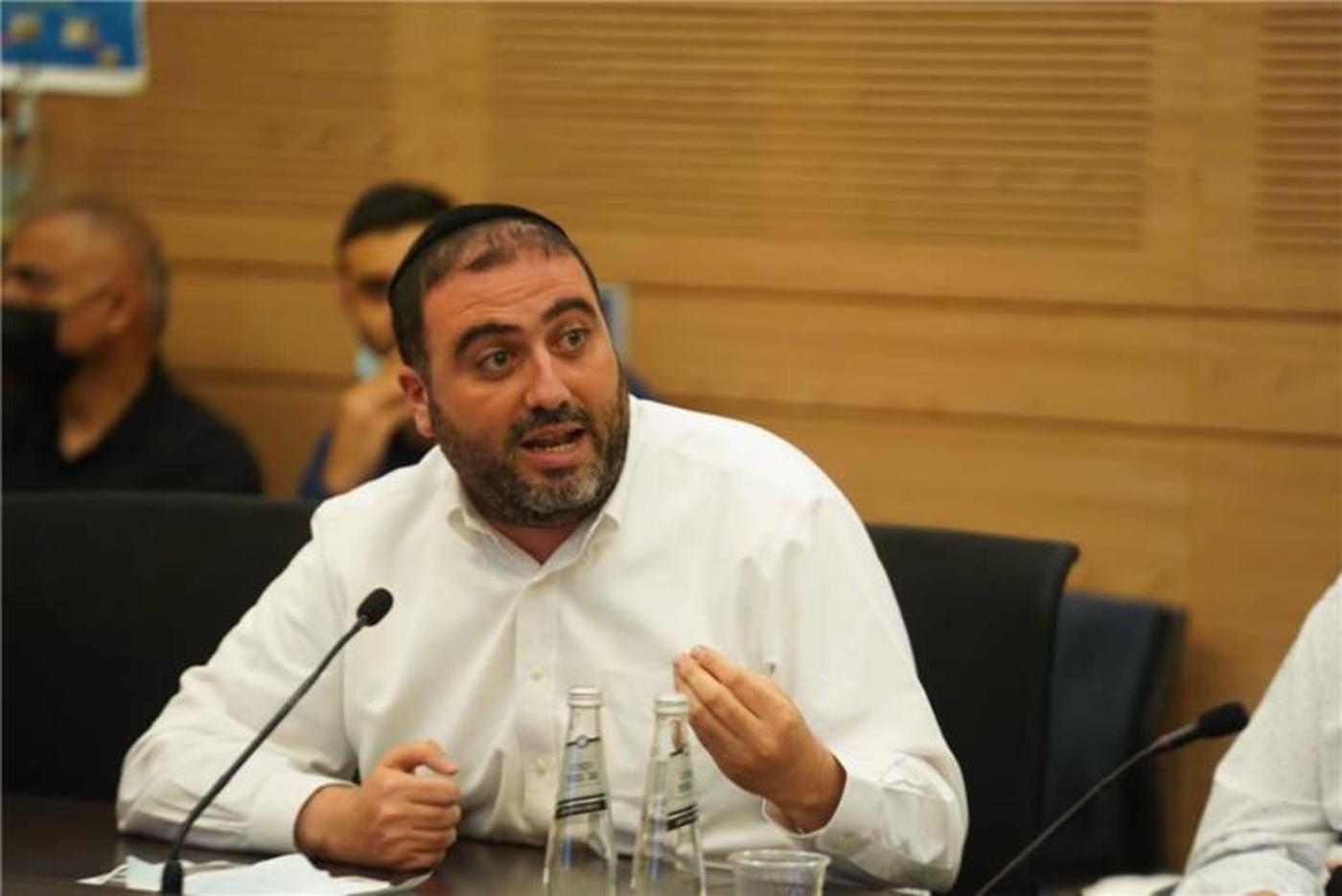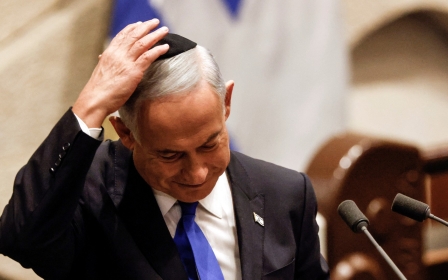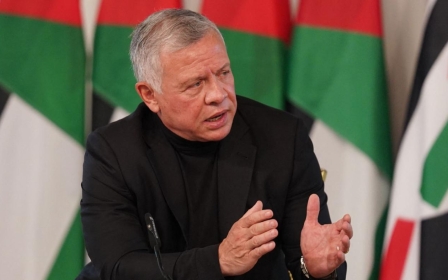Meet the ministers who make up Israel's most right-wing government ever
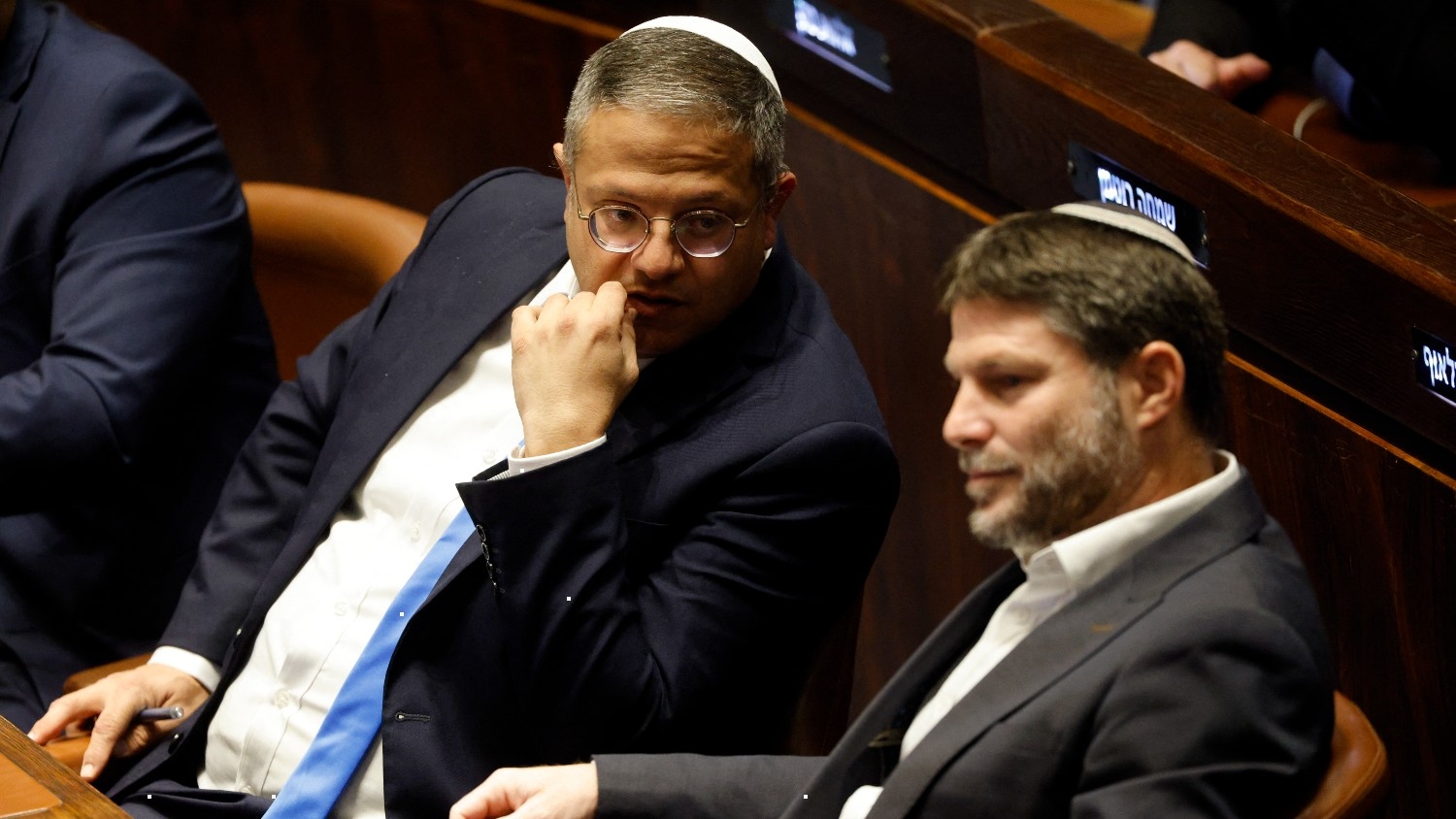
Benjamin Netanyahu’s sixth government was sworn into office on Thursday, as protesters took to the streets in front of the Knesset in Jerusalem.
The new government is set to be Israel's most right-wing administration in history, including MPs from the Likud party, far-right religious Zionist factions and ultra-Orthodox parties - who together hold 64 of the parliament's 120 seats.
Prime Minister Netanyahu has appointed 29 ministers and three deputies. The ministry of defence, health and welfare will have two leaders each. Several ministries will have rotations of leadership after one or two years. Only four women ministers have been appointed.
The government said on Wednesday that its main guiding policy will be that "the Jewish people have an exclusive and indisputable right to all areas of the Land of Israel".
"The government will promote and develop settlements in all parts of the Land of Israel in the Galilee, Negev, Golan, Judea and Samaria," it added, using the Israeli names for the occupied West Bank.
New MEE newsletter: Jerusalem Dispatch
Sign up to get the latest insights and analysis on Israel-Palestine, alongside Turkey Unpacked and other MEE newsletters
Outgoing Prime Minister Yair Lapid condemned his successor Netanyahu for "leading us towards a dark, halakhic [religious law] country".
Here's a look at the men and women now in charge:
Benjamin Netanyahu (Likud) – prime minister
Benjamin Netanyahu, leader of the Likud party and Israel's longest-serving prime minister, will head the new government coalition and return as prime minister. Netanyahu has served as prime minister for a total of 15 years, his latest stint being marked by his relationship with Donald Trump, who during his term as US president recognised Jerusalem as the capital of Israel and brokered the Abraham Accords normalisation deals with several Arab states. Netanyahu has been indicted on charges of bribery, fraud and breach of trust, allegations he denies and is battling in court.
Bezalel Smotrich (Religious Zionism) – finance minister and minister in the defence ministry
Far-right Religious Zionism party leader Bezalel Smotrich will be Israel's new finance minister as well as being responsible for governing the occupied West Bank through a new role created for him within the defence ministry. Smotrich is a notorious racist, homophobe and Jewish ultra-nationalist. He is a staunch supporter of building illegal Jewish settlements on occupied Palestinian lands. In a speech to the parliament this week, he said he plans to "regulate and strengthen our grip on the homeland" as part of his role as a minister in the defence ministry.
Arye Dery (Shas) – interior minister and health minister
Arye Dery, leader of the ultra-Orthodox Shas party, will lead both the interior and health ministries. After two years serving as interior and health minister he will replace Smotrich as finance minister. Dery received a suspended sentence for tax fraud in January and made a deal with the court to not be banned from politics. A change in the law this week modified the standards required for ministers to be appointed so that only people serving time in prison would be banned from taking office. MPs dubbed the amendment "Dery law" due to its very specific applicability to the incoming minister.
Itmar Ben-Gvir (Jewish Power) – national security minister
Itamar Ben-Gvir, leader of the far-right Jewish Power party, is appointed national security minister. He was previously convicted in Israel of incitement to racism and supporting a terrorist organisation. Following an agreement signed with Netanyahu, Ben-Gvir will take control of the border police, a branch of the military operating in the occupied West Bank and East Jerusalem, including security at al-Aqsa Mosque. Ben-Gvir, who lives in an illegal settlement in the West Bank city of Hebron, also has expanded powers over the police.
Eli Cohen (Likud) – foreign minister
Eli Cohen becomes foreign minister of Israel and after a year, he will swap with Yisrael Katz and become energy minister. After two years they will exchange again. Negotiations over who would take the position of foreign minister caused weeks of intrigue as Cohen vied with Ron Dermer, a former ambassador to the US, for the role. Cohen previously headed the economy and intelligence ministries under Netanyahu. He worked in business before joining Israel's parliament, the Knesset, in 2015.
Yoav Gallant (Likud) – defence minister
Netanyahu appointed Likud MP and former head of the military's southern command Yoav Gallant as defence minister. Gallant was set to become the Israeli military's chief of staff in 2010 but a scandal around the construction of his home forced him to step aside and be replaced by Benny Gantz, who he is now, in turn, replacing as defence minister. The former southern command leader has a hawkish reputation, but his portfolio has lost much of its power to Ben-Gvir and Smotrich.
Ron Dermer (Likud) – strategic affairs minister
Ron Dermer is appointed strategic affairs minister, focusing on combating international boycott efforts. Dermer served as Israeli ambassador to the US between 2013 and 2021. He was in the running to become foreign minister, but Eli Cohen took the role instead. Dermer is a close ally of Netanyahu. In 2015, Netanyahu addressed US Congress over the Iran nuclear deal in a speech believed to be orchestrated by Dermer, a controversial move as the Obama administration neared a final agreement.
Yaakov Margi (Shas) – welfare minister
Yaakov Margi is appointed welfare minister and after two years he will become a minister in the same ministry, passing its leadership to Yoav Bentzur, who is first serving as an additional minister.
Yisrel Katz (Likud) – energy minister
Yisrael Katz is appointed energy minister and after a year, he will swap with Eli Cohen and become foreign minister. After two years they will exchange their positions again. Katz is a former foreign and finance minister. After a meeting with Netanyahu to negotiate his claim as foreign minister he reportedly stormed out the room refusing to rotate with Cohen. He conceded and eventually agreed with the setup.
Orit Strock (Religious Zionism) – national missions minister
Ori Strock is appointed national missions minister in the new government. She is a leading figure in Hebron’s settler community and founder of the Human Rights Organisation of Judea and Samaria, a highly controversial settlement group. Last week, she said doctors shouldn't be required to treat patients when it contradicts their religious beliefs, widely interpreted as targeting Palestinian citizens and members of the LGBTQ community. The remarks sparked a backlash after she said that "as long as there are other doctors who can provide the same service", a doctor shouldn't be compelled to compromise. Her son was sentenced to two and a half years in prison for kidnapping and abusing a Palestinian boy.
Yoav Bentzur (Shas) – minister in the welfare ministry
Yoav Bentzur becomes a minister in the welfare ministry and after two years he will become the welfare minister, swapping roles with Yaakov Margi. He has been the director general of ultra-Orthodox party Shas since 2001 and was first elected to the Knesset in 2003. He briefly served as chairman of the House Committee and was appointed minister of religious services in Netanyahu’s 2009 government. In 2020 he was appointed deputy minister of the periphery, Negev and Galilee and deputy minister of interior.
Galit Distal Atbaryan (Likud) – minister at the PM’s office
Galit Distal-Atbaryan will serve as a minister at the prime minister's office. A former author, she shifted to politics as a right-wing commentator and staunch supporter of Netanyahu. She was elected to the Knesset in 2021 and 2022 as part of the Likud party. In 2021, she disputed the existence of autism, which brought a wave of criticism from families with autistic children.
Avi Maoz (Noam) – deputy minister at the PM’s office
Avi Maoz is the leader of the Noam party and its sole member in the government and Knesset. He will serve as deputy minister in Netanyahu’s office, but also as head of the authority of national-Jewish identity. Maoz and his party are anti-LGBTQ and released a blacklist of people and organisations that identified as identified as part of the community, leftist or pro-women's rights. Noam said in the Knesset: "My criticism is always about the ideology, the agendas and the organisations that use private individuals for the benefit of those agendas. I'm not talking about any of those who are personally attracted to their own gender, but about LGBTism as an idea and as a political movement."
Yitzhak Goldknopf (United Torah Judaism) – housing minister and minister in the PM’s office
Yitzhak Goldknopf is the leader of the ultra-Orthodox United Torah Judaism (UTJ) party and a former member of the Jerusalem City Council. Like many UTJ members, he’s never served in the military and is a big proponent to expand the exemption from military service for all ultra-Orthodox Jews. He will sit on a committee that will influence military and security forces policy. A wealthy businessman, he caused scandal recently by claiming Israel had no housing crisis, when property prices rose this year by 20 percent.
Yoav Kisch (Likud) – education minister, regional cooperation minister and Knesset-Cabinet liaison
Yoav Kisch will serve as education minister and as a liasion between the Knesset and the cabinet. A former British citizen, he had to renounce his citizenship in 2015 to take up a seat in the Knesset. In 2013, he ran with Likud for a seat in parliament but lost.
Amichai Chikli (Likud) – diaspora minister and social equality minister
Amichai Chikli will be Israel’s new diaspora minister and social equality minister, two offices with a small budget. Some expect him to struggle to bridge Israel and the Jewish diaspora, which is increasingly concerned by the direction of this new government. He was a member of the Yamina party before switching to Likud. Chikli is known to have ties to progressive Jewish movements and founded a pre-army programme, which aided him in developing connections with Jewish associations worldwide.
Miri Regev (Likud) – transportation minister
Regev, who will serve as transportation minister, was previously a spokeswoman for the Israeli military. She has served as minister for culture and sport, as well as transport minister. In 2017 Netanyahu appointed her acting prime minister while abroad. Regev said she wishes to become Likud leader whenever Netanyahu steps down, highlighting her background as a Sephardic Jew, a community from which Likud draws much support. At a 2012 anti-immigration demonstration she called Sudanese immigrants “infiltrators” and a “cancer in the nation’s body”.
Yariv Levin (Likud) – justice minister and intelligence minister
Levin will serve in two ministries: justice and intelligence. He was speaker of the Knesset from 2020 to 2022 and held minister posts within the internal security, tourism and Aliyah and integration ministries. He opposes the creation of a Palestinian state and is a strong critic of Israel’s justice system, which is set for an overhaul according to recently signed coalition agreements.
Avi Dichter (Likud) – agriculture minister
Dichter, who will serve as agriculture minister, previously held positions as minister of international security and director of Shin Bet, Israel’s internal security agency, during the Second Intifada. He reformed the Shin Bet during his tenure and led intelligence operations in the occupied West Bank and Gaza Strip.
Ofir Akunis (Likud) – minister of innovation, science and technology
Akunis, incoming minister for innovation, science and technology, previously served as minister of labour social affairs and social services, as well as minister of science and technology and minister of regional cooperation. In 1996, he was Netanyahu's deputy media adviser during his first term as prime minister and later became spokesman for Likud and for the minister of justice. In 2004, he was appointed Netanyahu's media adviser when he served as finance minister. In 2008, he became deputy director of communications and information for Likud.
Idit Silman (Likud) – environment protection minister
Silman served as member of the Knesset for the Yamina party from 2021 to 2022. Previously she was part of the Union of Right-Wing Parties, a right-wing coalition formed ahead of the 2019 legislative elections. She also served as parliamentary whip for the coalition before resigning due to what then-Prime Minister Naftali Bennett called persecution by Likud supporters. She ran for the Knesset again in 2022 as part of Likud and was elected.
Haim Katz (Likud) – tourism minister
Katz is Israel’s new tourism minister, after serving as labour, welfare and social services minister between 2015 and 2019. Originally born in Germany, he came to Israel in 1949. He was indicted and charged with conflict of interest and conspiracy to achieve a lawful purpose by improper means in 2021, and received a suspended sentence for abuse of power while chairman of the Knesset’s social welfare committee.
Michael Malkieli (Shas) – religious services minister
Malkieli was chief of staff to David Azulai, former minister of religious services, before taking up the ministerial role himself. He is a former Jerusalem city councillor and became a Knesset member for the Shas party in 2016, despite losing in the 2015 election, after Arye Dery resigned his seat.
Nir Barkat (Likud) – economy minister
Barkat, Israel’s new economy minister, is a businessman and believed to be the country’s richest politician, with a net worth of roughly $140m, according to Forbes Israel. He is also a former Jerusalem mayor, serving between 2008 and 2018, reportedly not taking a salary during his tenure. He was one of 565 Israelis involved in the Pandora Papers, a leak of documents showing how the world’s richest hide their money in offshore companies and secret bank accounts.
Yitzhak Wasserlauf (Jewish Power) – minister for the development of the Negev and Galilee
Wasserlauf, the new administration’s youngest minister at only 30 years old, was also the youngest Knesset member when he was elected on a the Religious Zionism alliance list in the 2022 legislative election.
Ofir Sofer (Religious Zionism) – Aliyah and integration minister
Incoming Aliyah and integration minister Sofer used to be a major in the army and also held a position within the ministry of development for the periphery, the Negev and the Galilee. In 2021 he ran in elections with Likud and this year he split and joined the Religious Zionism party.
Miki Zohar (Likud) – culture and sports minister
Zohar has served in the Knesset since 2015. Between 2020 and 2021 he was deputy speaker of the Knesset before being elected again in 2021 and chairing the arrangements committee. In 2018 he said on a radio show that "the entire Jewish race is the highest human capital, the smartest, the most comprehending". During the Covid-19 pandemic he was a staunch defender of private events and weddings during lockdown, as his family was involved in the business of managing such events.
Shlomo Karhi (Likud) – communications minister
Incoming communications minister Karhi is an academic and MP. He worked as a lecturer at the Sapit Academic College, after which he joined the Ben-Gurion and the Bar-Illan universities.
Haim Biton (Shas) – minister in the education ministry
Biton is former chairman of Shas and the new minister in the education ministry. He led the Ma’avan Hinuk Torani school system, but Israel’s attorney general ruled in 2020 he could not hold both positions. He lives in a settlement in north Jerusalem.
Amichai Eliyahu (Jewish Power) – heritage minister
Eliyahu, who will serve as Israel’s new heritage minister, has only just been elected to the Knesset. He is the grandson of the former Sephardic chief rabbi of Israel Mordechai Eliyahu.
Moshe Abutbul (Shas) – deputy agriculture minister
Abutbul, who will be deputy agriculture minister in the new government, entered the Knesset in the 2019 election as a Shas member. He served on several committees during his tenure, including the Lobby for the Preservation of Sabbath. He was previously mayor of Beit Shemesh between 2008 and 2018, when he lost the election for his third term by just over 500 votes.
Moshe Arbel (Shas) – deputy interior and health minister
Arbel, a Haredi rabbi and former Knesset member, will serve as deputy interior and health minister. He was temporary head of the ministry for religious services, replacing David Azulai during a leave from office due to an illness. He was elected to the Knesset in 2019 as part of the Shas party.
Middle East Eye delivers independent and unrivalled coverage and analysis of the Middle East, North Africa and beyond. To learn more about republishing this content and the associated fees, please fill out this form. More about MEE can be found here.


